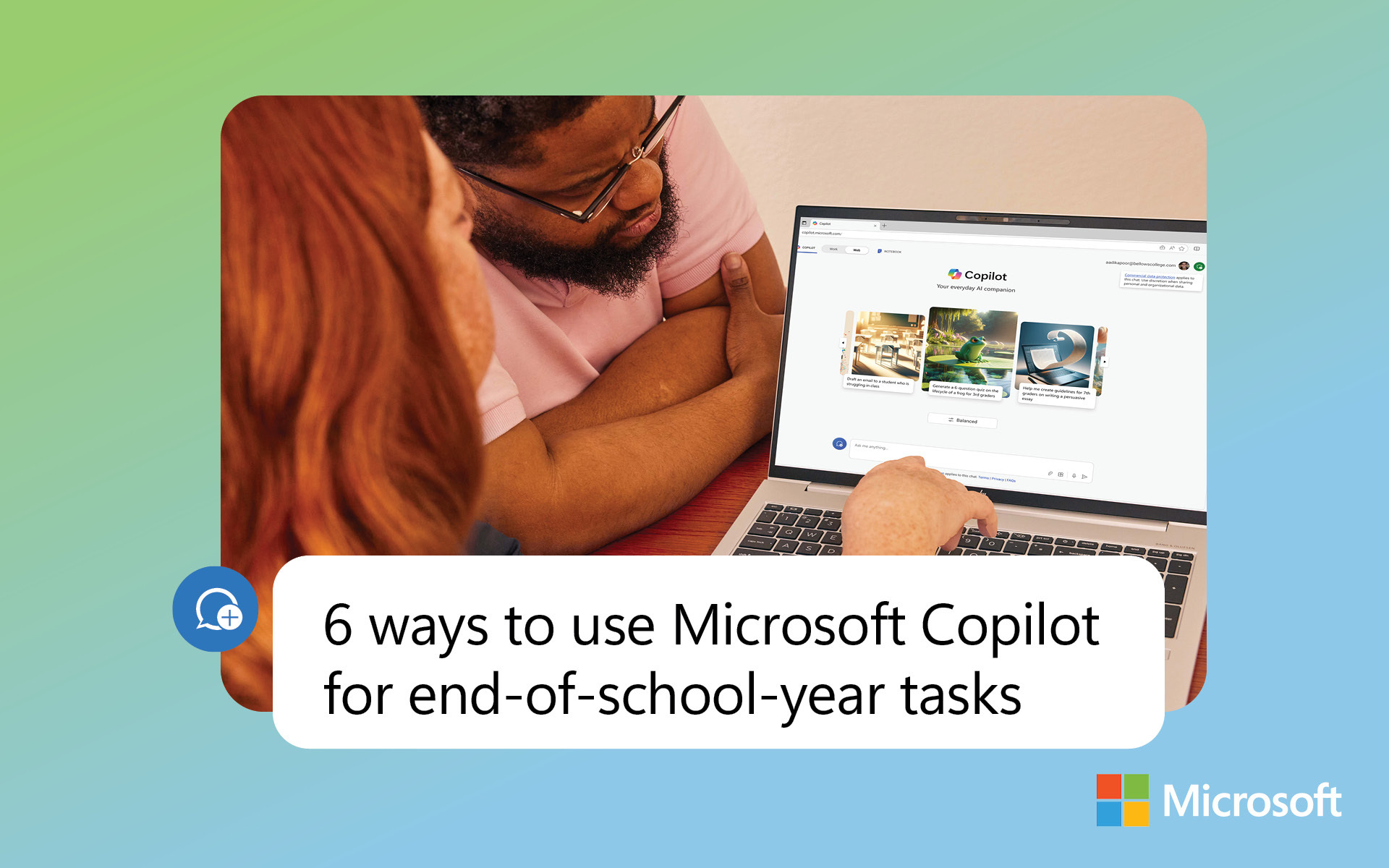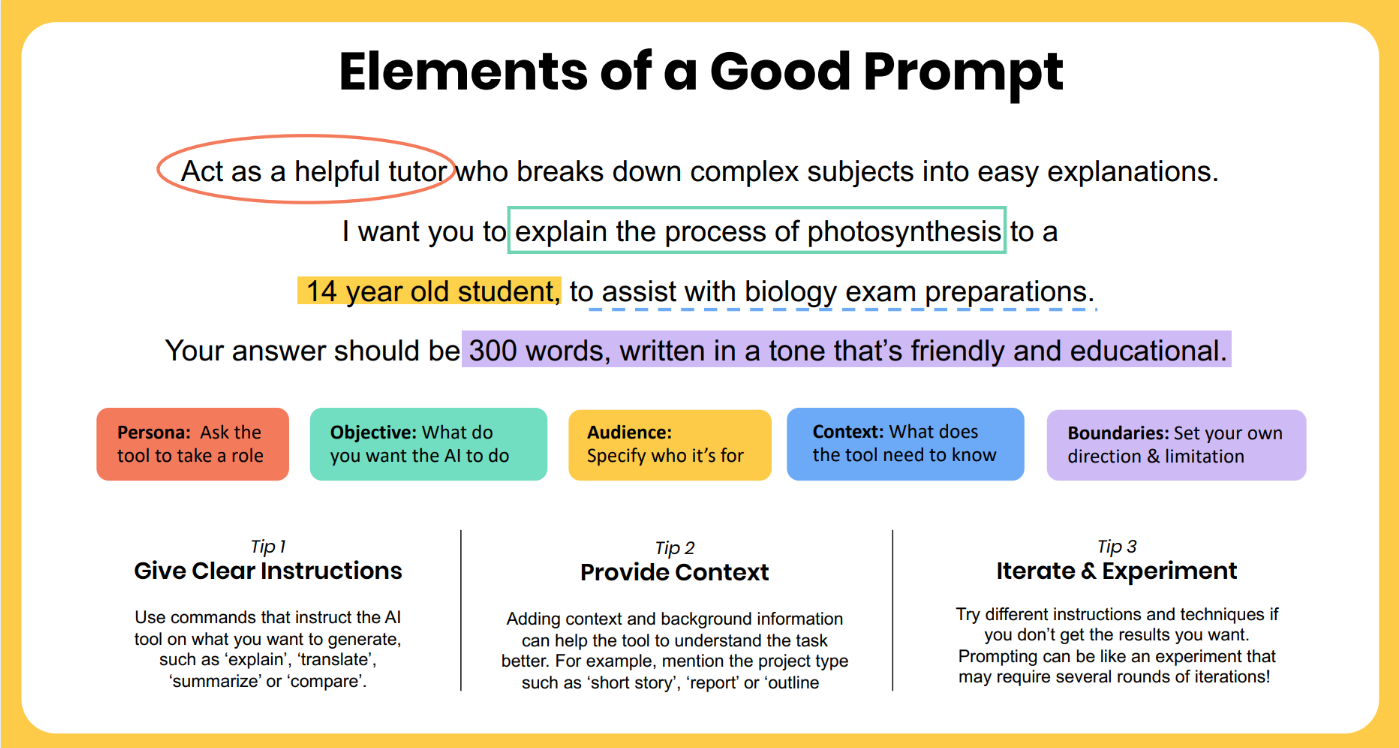

14 Proven Tips For Completing Assignments

Completing assignments can be a daunting task, but there are a few things that you can do to make the process a whole lot easier.
Are you finding it difficult to complete your assignments on time? If you’re looking for some tips to help you get organized and stay on track, you’ve come to the right place. In this post, I’ll share some helpful strategies that will make completing your assignments a breeze.
But first, let’s analyze why it’s essential that you complete your assignments on time.
Why are assignments important?
Though often met with groans and complaints, academic assignments are actually beneficial in a number of ways. For one, they force students to engage with the material on a deeper level, encouraging them to really think about what they’re learning and stay on track with their studies.
In addition, academic assignments help students to develop important research, writing and study skills that will be useful in college and beyond.
Academic assignments also give students the opportunity to receive feedback from their instructors on their work.
Assignments are a great way to increase parent engagement in learning and for students to develop a sense of responsibility.
Notably, despite its benefits, too many assignments can do more harm than good.
Too much assignments can interfere with free time and involvement in extra-curricular activities. Assignment completion may be increasingly frustrating and stressful when there are challenges with the home environment. O’Rourke-Ferrara, 1998
Why is completing assignments on time important?
Completing assignments on time allows you to fully engage with the material and understand the concepts.
Subsequently, you’ll likely earn better grades and improve your chances of success in school. Additionally, completing assignments in a timely manner will also give you a sense of accomplishment and satisfaction.
Completing assignments on time demonstrates to your instructor that you are capable of meeting deadlines. This is important in both academic and professional settings.
Plus we all know that once you start falling behind on assignments, it can be difficult to catch up.
Finally, completing assignments on time will likely improve your sleep and reduce stress levels.
According to research, completing assignments improves independence, self-discipline, and time management skills. In addition, it has been linked with better grades and academic success. planchard et al., 2015

Tips for completing assignments
So how can you make sure that you complete your assignments on time? Here are a few tips that may help:
1. Read the assignment instructions carefully
Make sure you understand what is expected of you before you start working on the assignment. Read the instructions carefully, and if anything is unclear, be sure to ask for clarification.
2. Identify why the assignment is necessary
Identifying why the assignment is necessary is an important first step for success. Acknowledging the importance of a task or goal can help you stay motivated to do the best possible work and see meaningful results.
It gives purpose to your efforts, and this in turn can help provide focus and direction, leading to better results through hard work and dedication.
Research shows that the main motivating factors for homework completion were: (1) Reinforcement: desire to learn or master the material (2) Credit (3) Extra-credit planchard et al., 2015
3. Start early to complete assignments on time
Assignments can take longer than you think, so start working on them as soon as they’re assigned. This will help you avoid last-minute stress and ensure that you have enough time to complete the assignment to the best of your ability.
4. Set goals for assignment completion
One way to stay on track with an assignment is to break it down into smaller goals. For example, if you have a research paper to write, your goal for the first day might be to choose a topic and find five sources.
Once you’ve met that goal, you can set a new goal for the next day. Breaking the assignment down into smaller tasks can help to make it feel less overwhelming, and it can also help you to track your progress.
5 . Create a schedule to finish assignments
Once you know when the assignment is due, create a schedule that breaks the work down into manageable tasks. This will help you stay on track and avoid feeling overwhelmed by the assignment.
Research shows that the most common demotivating factors for homework completion were: (1) Other commitments (2) Difficulty understanding (3) Too difficult or too long planchard et al., 2015
6. Identify the resources required for the assignment
Another important step in completing an assignment is to identify the resources that you’ll need. This might include books, articles, websites, or people you can interview. Having a list of resources will help you to focus your research and make the process easier.
7. Track your reference s when researching
As you’re doing research for your assignment, be sure to track the references that you’re using. This will save you time when you’re writing your paper and will ensure that you give credit to the sources that you’ve used.
8. Set aside uninterrupted time for assignments
Once you have a schedule, set aside time each day or each week to work on the assignment. During this time, turn off distractions like your phone and social media. This will help you stay focused and make the most of your time.

9. Ask for help if you get stuck
If you’re struggling with the assignment, don’t hesitate to ask for help. Talk to your professor, a tutor, or a friend who is doing well in the class. They can offer guidance and support that can help you get back on track.
10. Take breaks when completing assignments
Working on an assignment for long periods of time can be overwhelming and lead to burnout. To avoid this, take breaks throughout the day or week. during your break, do something that you enjoy or that will help you relax.
11. Celebrate your progress
As you complete tasks on your schedule, take a moment to celebrate your progress. This will help you stay motivated and focused. It can be something as simple as taking a break after completing a section or giving yourself a small treat.
12. Proofread your assignments
Once you’ve completed the assignment, take the time to proofread it. This will help you catch any mistakes and make sure that your work is of the best quality.
13. Submit your assignments on time
Make sure to submit your assignment on time. If you’re having trouble with this, talk to your professor or a tutor. They may be able to offer extension or help you get back on track.
14. Relax after completing each assignment
After you’ve submitted the assignment, it’s important to relax. Take some time for yourself and do something that you enjoy. This will help you relax and prepare for the next assignment.
Final words on proven tips for completing assignments
If you follow these tips, you will be well on your way to acing any assignment. Do you have any other studying or coursework tips that have worked well for you?
Drop a comment below and let me know. Best of luck in all your future assignments.
Read also: 22 Key Tips To Easily Improve Writing Skills
O’Rourke-Ferrara, Catherine. “Did You Complete All Your Homework Tonight, Dear?” Information Analyses (070) Opinion Papers (120) — Reports Research (143) 1998
Planchard, Matthew S. et al. “Homework, Motivation, and Academic Achievement in a College Genetics Course.” Bioscene: The Journal Of College Biology Teaching 41 (2015): 11-18. https://files.eric.ed.gov/fulltext/EJ1086528.pdf
Similar Posts

67 Powerful Quotes On Communication To Keep You Inspired
Are you looking for some quotes on communication that will inspire and motivate you? If…

22 Common Email Mistakes + Tips To Avoid Them
Email mistakes can lead to loss of business, or worse, a damaged reputation. It’s time…

55 Common Writing Terms, Meanings & Examples To Learn Right Now
Knowledge of common writing terms will help you produce more polished pieces that make the…

20 Golden Rules To Improve Email Etiquette
An email may be a fast, easy way to communicate with friends, family and co-workers….

22 Key Tips To Easily Improve Writing Skills
Are you having trouble receiving good reviews for your writing? If so, don’t worry –…

Rushana Greenidge-Horace
Rushana is a dynamic, knowledgeable professional with almost a decade of experience in the healthcare industry. She remains committed to promoting holistic health and wellness.
Leave a Reply Cancel reply
Your email address will not be published. Required fields are marked *
Save my name, email, and website in this browser for the next time I comment.


Understanding Assignments
What this handout is about.
The first step in any successful college writing venture is reading the assignment. While this sounds like a simple task, it can be a tough one. This handout will help you unravel your assignment and begin to craft an effective response. Much of the following advice will involve translating typical assignment terms and practices into meaningful clues to the type of writing your instructor expects. See our short video for more tips.
Basic beginnings
Regardless of the assignment, department, or instructor, adopting these two habits will serve you well :
- Read the assignment carefully as soon as you receive it. Do not put this task off—reading the assignment at the beginning will save you time, stress, and problems later. An assignment can look pretty straightforward at first, particularly if the instructor has provided lots of information. That does not mean it will not take time and effort to complete; you may even have to learn a new skill to complete the assignment.
- Ask the instructor about anything you do not understand. Do not hesitate to approach your instructor. Instructors would prefer to set you straight before you hand the paper in. That’s also when you will find their feedback most useful.
Assignment formats
Many assignments follow a basic format. Assignments often begin with an overview of the topic, include a central verb or verbs that describe the task, and offer some additional suggestions, questions, or prompts to get you started.
An Overview of Some Kind
The instructor might set the stage with some general discussion of the subject of the assignment, introduce the topic, or remind you of something pertinent that you have discussed in class. For example:
“Throughout history, gerbils have played a key role in politics,” or “In the last few weeks of class, we have focused on the evening wear of the housefly …”
The Task of the Assignment
Pay attention; this part tells you what to do when you write the paper. Look for the key verb or verbs in the sentence. Words like analyze, summarize, or compare direct you to think about your topic in a certain way. Also pay attention to words such as how, what, when, where, and why; these words guide your attention toward specific information. (See the section in this handout titled “Key Terms” for more information.)
“Analyze the effect that gerbils had on the Russian Revolution”, or “Suggest an interpretation of housefly undergarments that differs from Darwin’s.”
Additional Material to Think about
Here you will find some questions to use as springboards as you begin to think about the topic. Instructors usually include these questions as suggestions rather than requirements. Do not feel compelled to answer every question unless the instructor asks you to do so. Pay attention to the order of the questions. Sometimes they suggest the thinking process your instructor imagines you will need to follow to begin thinking about the topic.
“You may wish to consider the differing views held by Communist gerbils vs. Monarchist gerbils, or Can there be such a thing as ‘the housefly garment industry’ or is it just a home-based craft?”
These are the instructor’s comments about writing expectations:
“Be concise”, “Write effectively”, or “Argue furiously.”
Technical Details
These instructions usually indicate format rules or guidelines.
“Your paper must be typed in Palatino font on gray paper and must not exceed 600 pages. It is due on the anniversary of Mao Tse-tung’s death.”
The assignment’s parts may not appear in exactly this order, and each part may be very long or really short. Nonetheless, being aware of this standard pattern can help you understand what your instructor wants you to do.
Interpreting the assignment
Ask yourself a few basic questions as you read and jot down the answers on the assignment sheet:
Why did your instructor ask you to do this particular task?
Who is your audience.
- What kind of evidence do you need to support your ideas?
What kind of writing style is acceptable?
- What are the absolute rules of the paper?
Try to look at the question from the point of view of the instructor. Recognize that your instructor has a reason for giving you this assignment and for giving it to you at a particular point in the semester. In every assignment, the instructor has a challenge for you. This challenge could be anything from demonstrating an ability to think clearly to demonstrating an ability to use the library. See the assignment not as a vague suggestion of what to do but as an opportunity to show that you can handle the course material as directed. Paper assignments give you more than a topic to discuss—they ask you to do something with the topic. Keep reminding yourself of that. Be careful to avoid the other extreme as well: do not read more into the assignment than what is there.
Of course, your instructor has given you an assignment so that they will be able to assess your understanding of the course material and give you an appropriate grade. But there is more to it than that. Your instructor has tried to design a learning experience of some kind. Your instructor wants you to think about something in a particular way for a particular reason. If you read the course description at the beginning of your syllabus, review the assigned readings, and consider the assignment itself, you may begin to see the plan, purpose, or approach to the subject matter that your instructor has created for you. If you still aren’t sure of the assignment’s goals, try asking the instructor. For help with this, see our handout on getting feedback .
Given your instructor’s efforts, it helps to answer the question: What is my purpose in completing this assignment? Is it to gather research from a variety of outside sources and present a coherent picture? Is it to take material I have been learning in class and apply it to a new situation? Is it to prove a point one way or another? Key words from the assignment can help you figure this out. Look for key terms in the form of active verbs that tell you what to do.
Key Terms: Finding Those Active Verbs
Here are some common key words and definitions to help you think about assignment terms:
Information words Ask you to demonstrate what you know about the subject, such as who, what, when, where, how, and why.
- define —give the subject’s meaning (according to someone or something). Sometimes you have to give more than one view on the subject’s meaning
- describe —provide details about the subject by answering question words (such as who, what, when, where, how, and why); you might also give details related to the five senses (what you see, hear, feel, taste, and smell)
- explain —give reasons why or examples of how something happened
- illustrate —give descriptive examples of the subject and show how each is connected with the subject
- summarize —briefly list the important ideas you learned about the subject
- trace —outline how something has changed or developed from an earlier time to its current form
- research —gather material from outside sources about the subject, often with the implication or requirement that you will analyze what you have found
Relation words Ask you to demonstrate how things are connected.
- compare —show how two or more things are similar (and, sometimes, different)
- contrast —show how two or more things are dissimilar
- apply—use details that you’ve been given to demonstrate how an idea, theory, or concept works in a particular situation
- cause —show how one event or series of events made something else happen
- relate —show or describe the connections between things
Interpretation words Ask you to defend ideas of your own about the subject. Do not see these words as requesting opinion alone (unless the assignment specifically says so), but as requiring opinion that is supported by concrete evidence. Remember examples, principles, definitions, or concepts from class or research and use them in your interpretation.
- assess —summarize your opinion of the subject and measure it against something
- prove, justify —give reasons or examples to demonstrate how or why something is the truth
- evaluate, respond —state your opinion of the subject as good, bad, or some combination of the two, with examples and reasons
- support —give reasons or evidence for something you believe (be sure to state clearly what it is that you believe)
- synthesize —put two or more things together that have not been put together in class or in your readings before; do not just summarize one and then the other and say that they are similar or different—you must provide a reason for putting them together that runs all the way through the paper
- analyze —determine how individual parts create or relate to the whole, figure out how something works, what it might mean, or why it is important
- argue —take a side and defend it with evidence against the other side
More Clues to Your Purpose As you read the assignment, think about what the teacher does in class:
- What kinds of textbooks or coursepack did your instructor choose for the course—ones that provide background information, explain theories or perspectives, or argue a point of view?
- In lecture, does your instructor ask your opinion, try to prove their point of view, or use keywords that show up again in the assignment?
- What kinds of assignments are typical in this discipline? Social science classes often expect more research. Humanities classes thrive on interpretation and analysis.
- How do the assignments, readings, and lectures work together in the course? Instructors spend time designing courses, sometimes even arguing with their peers about the most effective course materials. Figuring out the overall design to the course will help you understand what each assignment is meant to achieve.
Now, what about your reader? Most undergraduates think of their audience as the instructor. True, your instructor is a good person to keep in mind as you write. But for the purposes of a good paper, think of your audience as someone like your roommate: smart enough to understand a clear, logical argument, but not someone who already knows exactly what is going on in your particular paper. Remember, even if the instructor knows everything there is to know about your paper topic, they still have to read your paper and assess your understanding. In other words, teach the material to your reader.
Aiming a paper at your audience happens in two ways: you make decisions about the tone and the level of information you want to convey.
- Tone means the “voice” of your paper. Should you be chatty, formal, or objective? Usually you will find some happy medium—you do not want to alienate your reader by sounding condescending or superior, but you do not want to, um, like, totally wig on the man, you know? Eschew ostentatious erudition: some students think the way to sound academic is to use big words. Be careful—you can sound ridiculous, especially if you use the wrong big words.
- The level of information you use depends on who you think your audience is. If you imagine your audience as your instructor and they already know everything you have to say, you may find yourself leaving out key information that can cause your argument to be unconvincing and illogical. But you do not have to explain every single word or issue. If you are telling your roommate what happened on your favorite science fiction TV show last night, you do not say, “First a dark-haired white man of average height, wearing a suit and carrying a flashlight, walked into the room. Then a purple alien with fifteen arms and at least three eyes turned around. Then the man smiled slightly. In the background, you could hear a clock ticking. The room was fairly dark and had at least two windows that I saw.” You also do not say, “This guy found some aliens. The end.” Find some balance of useful details that support your main point.
You’ll find a much more detailed discussion of these concepts in our handout on audience .
The Grim Truth
With a few exceptions (including some lab and ethnography reports), you are probably being asked to make an argument. You must convince your audience. It is easy to forget this aim when you are researching and writing; as you become involved in your subject matter, you may become enmeshed in the details and focus on learning or simply telling the information you have found. You need to do more than just repeat what you have read. Your writing should have a point, and you should be able to say it in a sentence. Sometimes instructors call this sentence a “thesis” or a “claim.”
So, if your instructor tells you to write about some aspect of oral hygiene, you do not want to just list: “First, you brush your teeth with a soft brush and some peanut butter. Then, you floss with unwaxed, bologna-flavored string. Finally, gargle with bourbon.” Instead, you could say, “Of all the oral cleaning methods, sandblasting removes the most plaque. Therefore it should be recommended by the American Dental Association.” Or, “From an aesthetic perspective, moldy teeth can be quite charming. However, their joys are short-lived.”
Convincing the reader of your argument is the goal of academic writing. It doesn’t have to say “argument” anywhere in the assignment for you to need one. Look at the assignment and think about what kind of argument you could make about it instead of just seeing it as a checklist of information you have to present. For help with understanding the role of argument in academic writing, see our handout on argument .
What kind of evidence do you need?
There are many kinds of evidence, and what type of evidence will work for your assignment can depend on several factors–the discipline, the parameters of the assignment, and your instructor’s preference. Should you use statistics? Historical examples? Do you need to conduct your own experiment? Can you rely on personal experience? See our handout on evidence for suggestions on how to use evidence appropriately.
Make sure you are clear about this part of the assignment, because your use of evidence will be crucial in writing a successful paper. You are not just learning how to argue; you are learning how to argue with specific types of materials and ideas. Ask your instructor what counts as acceptable evidence. You can also ask a librarian for help. No matter what kind of evidence you use, be sure to cite it correctly—see the UNC Libraries citation tutorial .
You cannot always tell from the assignment just what sort of writing style your instructor expects. The instructor may be really laid back in class but still expect you to sound formal in writing. Or the instructor may be fairly formal in class and ask you to write a reflection paper where you need to use “I” and speak from your own experience.
Try to avoid false associations of a particular field with a style (“art historians like wacky creativity,” or “political scientists are boring and just give facts”) and look instead to the types of readings you have been given in class. No one expects you to write like Plato—just use the readings as a guide for what is standard or preferable to your instructor. When in doubt, ask your instructor about the level of formality they expect.
No matter what field you are writing for or what facts you are including, if you do not write so that your reader can understand your main idea, you have wasted your time. So make clarity your main goal. For specific help with style, see our handout on style .
Technical details about the assignment
The technical information you are given in an assignment always seems like the easy part. This section can actually give you lots of little hints about approaching the task. Find out if elements such as page length and citation format (see the UNC Libraries citation tutorial ) are negotiable. Some professors do not have strong preferences as long as you are consistent and fully answer the assignment. Some professors are very specific and will deduct big points for deviations.
Usually, the page length tells you something important: The instructor thinks the size of the paper is appropriate to the assignment’s parameters. In plain English, your instructor is telling you how many pages it should take for you to answer the question as fully as you are expected to. So if an assignment is two pages long, you cannot pad your paper with examples or reword your main idea several times. Hit your one point early, defend it with the clearest example, and finish quickly. If an assignment is ten pages long, you can be more complex in your main points and examples—and if you can only produce five pages for that assignment, you need to see someone for help—as soon as possible.
Tricks that don’t work
Your instructors are not fooled when you:
- spend more time on the cover page than the essay —graphics, cool binders, and cute titles are no replacement for a well-written paper.
- use huge fonts, wide margins, or extra spacing to pad the page length —these tricks are immediately obvious to the eye. Most instructors use the same word processor you do. They know what’s possible. Such tactics are especially damning when the instructor has a stack of 60 papers to grade and yours is the only one that low-flying airplane pilots could read.
- use a paper from another class that covered “sort of similar” material . Again, the instructor has a particular task for you to fulfill in the assignment that usually relates to course material and lectures. Your other paper may not cover this material, and turning in the same paper for more than one course may constitute an Honor Code violation . Ask the instructor—it can’t hurt.
- get all wacky and “creative” before you answer the question . Showing that you are able to think beyond the boundaries of a simple assignment can be good, but you must do what the assignment calls for first. Again, check with your instructor. A humorous tone can be refreshing for someone grading a stack of papers, but it will not get you a good grade if you have not fulfilled the task.
Critical reading of assignments leads to skills in other types of reading and writing. If you get good at figuring out what the real goals of assignments are, you are going to be better at understanding the goals of all of your classes and fields of study.
You may reproduce it for non-commercial use if you use the entire handout and attribute the source: The Writing Center, University of North Carolina at Chapel Hill
Make a Gift
- PRO Courses Guides New Tech Help Pro Expert Videos About wikiHow Pro Upgrade Sign In
- EDIT Edit this Article
- EXPLORE Tech Help Pro About Us Random Article Quizzes Request a New Article Community Dashboard This Or That Game Popular Categories Arts and Entertainment Artwork Books Movies Computers and Electronics Computers Phone Skills Technology Hacks Health Men's Health Mental Health Women's Health Relationships Dating Love Relationship Issues Hobbies and Crafts Crafts Drawing Games Education & Communication Communication Skills Personal Development Studying Personal Care and Style Fashion Hair Care Personal Hygiene Youth Personal Care School Stuff Dating All Categories Arts and Entertainment Finance and Business Home and Garden Relationship Quizzes Cars & Other Vehicles Food and Entertaining Personal Care and Style Sports and Fitness Computers and Electronics Health Pets and Animals Travel Education & Communication Hobbies and Crafts Philosophy and Religion Work World Family Life Holidays and Traditions Relationships Youth
- Browse Articles
- Learn Something New
- Quizzes Hot
- This Or That Game
- Train Your Brain
- Explore More
- Support wikiHow
- About wikiHow
- Log in / Sign up
- Education and Communications
- Study Skills
- Homework Skills
How to Finish Your Homework
Last Updated: May 6, 2024 Fact Checked
This article was co-authored by Emily Listmann, MA . Emily Listmann is a private tutor in San Carlos, California. She has worked as a Social Studies Teacher, Curriculum Coordinator, and an SAT Prep Teacher. She received her MA in Education from the Stanford Graduate School of Education in 2014. There are 17 references cited in this article, which can be found at the bottom of the page. This article has been fact-checked, ensuring the accuracy of any cited facts and confirming the authority of its sources. This article has been viewed 280,771 times.
While studying can differ for different age groups, many of the things that get in the way are the same. Whether it's your environment or time management skills, it easy for things to discourage you from finishing your homework. With a little organization and help, your homework can become approachable.
Managing Your Time

- For instance, try setting aside a time you know you can work well such as an hour or 2 before dinner, or if you're a night owl, after dinner.

- Work in hour blocks, with 50 minutes spent studying and 10 minutes spent taking a break.
- It can also be helpful to move around when you are taking your break, especially if you are working at a screen. Go for a walk outside to get your blood circulating and enjoy some fresh air.
- You might also want to eat a healthy snack on your break to improve your focus. Avoid junk food and choose something like a handful of nuts, a piece of fruit, veggies, or a small portion of cottage cheese.

- Identify which assignments are worth the most points for each class. Most likely these will take the longest to complete. [5] X Research source
- Consider how long you have to do each project, and if possible, see when the assignment is introduced. Oftentimes, primary and secondary school classes do not have syllabi, so it might be harder to plan out an entire term, but if you are in college, you will most likely have a syllabus with at least a partial course schedule. Knowing how long you have to complete an assignment will help you prioritize which assignments to do first. You can also ask the teacher how long you have to complete an assignment. [6] X Research source

- Use highlighters or stickers to mark which assignments are most important.
- If you're using an online or mobile schedule, create alerts or notifications for the projects and any time-sensitive steps for those projects.

- Don't let a big project overshadow the smaller assignments you need to complete!

- Assignment outlines can help you visualize the necessary tasks to get the assignment done.

Creating a Productive Work Environment

- A desk or table would be a better location than a couch or a bed.

- Turn your phone off or on silent (not vibrate). It might be best to put the phone out of sight, or in another room while you work, as the temptation to text or get on social media can be as much of a distraction as actually using social media.
- Use an app that blocks social media. There are plenty of applications out there that can help block social media and other distracting sites (such as shopping or gaming sites). [10] X Trustworthy Source Pew Research Center Nonpartisan thinktank conducting research and providing information on public opinion, demographic trends, and social trends Go to source

- Use a white noise app to block out noise.
- Use earplugs or noise-blocking earmuffs. [12] X Research source
- Work in a quiet place, such as a library or a home office, if you have one.
- Avoid listening to music while studying. Studies have shown that although listening to music while studying lowers overall performance, this does not affect everyone equally. [13] X Research source However listening to music before studying has been shown to improve performance on cognitive tasks. [14] X Research source

Using Your Resources

- If you're too afraid to ask a teacher during class, see if you can stay behind to ask your questions.

- First, contact your school to see if there are any after-school tutoring programs. While not all primary and secondary schools offer tutoring, a vast majority of universities do. If your school does not offer tutoring, they may know of other resources for you to contact.
- Then, contact your library to see if they offer any tutoring. [18] X Research source
- In some areas, there may also be free community tutoring programs. Contact your local community center for more information.
- There are plenty of private tutors out there as well, but they can be costly (ranging from $20 to $100 an hour). [19] X Research source You can find tutors online through a number of websites, such as Craigslist or Angie's list.

- If you need to work at a library after school, ask your parents or search the web to find your local library.
Supercharge Your Studying with this Expert Series

Community Q&A
Reader Videos
- Don't feel too stressed or you'll be doing less work than you actually can. Thanks Helpful 7 Not Helpful 3
- Make sure you’re getting enough sleep. Thanks Helpful 5 Not Helpful 3
- Maintain a healthy diet. Thanks Helpful 5 Not Helpful 3

- Recommended time doing homework varies by age. The National PTA recommends about 10 minutes per grade level per night (30 minutes a night for the third grade). Thanks Helpful 9 Not Helpful 0
- Some people may need additional help in order to focus on their homework and finish it. If you are struggling in school, ask your parents or teachers about what resources may be available, and seek out professional help or ask your parents to do so, if necessary. Thanks Helpful 29 Not Helpful 9
- If you are under the age of thirteen, you may need to obtain your parents’ permission before downloading any computer applications. Thanks Helpful 30 Not Helpful 13
You Might Also Like

- ↑ https://kidshealth.org/en/teens/homework.html
- ↑ https://www.takingcharge.csh.umn.edu/power-habit-charles-duhigg
- ↑ https://www.edutopia.org/article/research-tested-benefits-breaks/
- ↑ https://www.wma.us/about/titan-blog/post/~board/titan-blog/post/how-to-prioritize-school-assignments-and-homework
- ↑ https://jhsap.org/self_help_resources/school-life_balance//
- ↑ https://lsc.cornell.edu/how-to-study/studying-for-and-taking-exams/guidelines-for-creating-a-study-schedule/
- ↑ https://success.oregonstate.edu/learning/concentration
- ↑ https://www.pewresearch.org/internet/2020/07/28/parenting-children-in-the-age-of-screens/
- ↑ https://kidshealth.org/en/teens/homework.html/
- ↑ https://absn.northeastern.edu/blog/8-things-to-keep-in-your-at-home-study-space/
- ↑ https://scholar.utc.edu/theses/171/
- ↑ https://onlinelibrary.wiley.com/doi/abs/10.1002/acp.1731
- ↑ https://kidshealth.org/en/teens/talk-to-parents.html
- ↑ https://rdw.rowan.edu/cgi/viewcontent.cgi?article=2412&context=etd
- ↑ https://blogs.chapman.edu/scst/2016/02/09/what-tutoring-is-and-what-tutoring-is-not/
- ↑ https://undergrad.stanford.edu/tutoring-support
- ↑ https://www.ideaedu.org/idea-notes-on-instruction/encouraged-students-to-use-multiple-resources-e-g-internet-library-holdings-outside-experts-to-improve-understanding/
About This Article

- Send fan mail to authors
Reader Success Stories
Darrell Rivers
Oct 16, 2021
Did this article help you?
Sep 13, 2021
Rowan Kennedy
Sep 9, 2016
Oct 19, 2021
Oct 9, 2021

Featured Articles

Trending Articles

Watch Articles

- Terms of Use
- Privacy Policy
- Do Not Sell or Share My Info
- Not Selling Info
wikiHow Tech Help Pro:
Level up your tech skills and stay ahead of the curve
US South Carolina
Recently viewed courses
Recently viewed.
Find Your Dream School
This site uses various technologies, as described in our Privacy Policy, for personalization, measuring website use/performance, and targeted advertising, which may include storing and sharing information about your site visit with third parties. By continuing to use this website you consent to our Privacy Policy and Terms of Use .
COVID-19 Update: To help students through this crisis, The Princeton Review will continue our "Enroll with Confidence" refund policies. For full details, please click here.
Enter your email to unlock an extra $25 off an SAT or ACT program!
By submitting my email address. i certify that i am 13 years of age or older, agree to recieve marketing email messages from the princeton review, and agree to terms of use., 8 easy ways to finish your homework faster.

How many times have you found yourself still staring at your textbook around midnight (or later!) even when you started your homework hours earlier? Those lost hours could be explained by Parkinson’s Law, which states, “Work expands to fill the time available for its completion.” In other words, if you give yourself all night to memorize those geometry formulas for your quiz tomorrow, you’ll inevitably find that a 30 minute task has somehow filled your entire evening.
We know that you have more homework than ever. But even with lots and lots to do, a few tweaks to your study routine could help you spend less time getting more accomplished. Here are 8 steps to make Parkinson’s Law work to your advantage:
1. Make a list
This should be a list of everything that has to be done that evening. And we mean, everything—from re-reading notes from this morning’s history class to quizzing yourself on Spanish vocabulary.
2. Estimate the time needed for each item on your list
You can be a little ruthless here. However long you think a task will take, try shaving off 5 or 10 minutes. But, be realistic. You won’t magically become a speed reader.
Free SAT Practice Tests & Events
Evaluate and improve your SAT score.
3. Gather all your gear
Collect EVERYTHING you will need for the homework you are working on (like your laptop for writing assignments and pencils for problem sets). Getting up for supplies takes you off course and makes it that much harder to get back to your homework.
The constant blings and beeps from your devices can make it impossible to focus on what you are working on. Switch off or silence your phones and tablets, or leave them in another room until it’s time to take a tech break.
Read More: How to Calculate Your GPA
5. Time yourself
Noting how much time something actually takes will help you estimate better and plan your next study session.
6. Stay on task
If you’re fact checking online, it can be so easy to surf on over to a completely unrelated site. A better strategy is to note what information you need to find online, and do it all at once at the end of the study session.
7. Take plenty of breaks
Most of us need a break between subjects or to break up long stretches of studying. Active breaks are a great way to keep your energy up. Tech breaks can be an awesome way to combat the fear of missing out that might strike while you are buried in your work, but they also tend to stretch much longer than originally intended. Stick to a break schedule of 10 minutes or so.
8. Reward yourself!
Finish early? If you had allocated 30 minutes for reading a biology chapter and it only took 20, you can apply those extra 10 minutes to a short break—or just move on to your next task. If you stay on track, you might breeze through your work quickly enough to catch up on some Netflix.
Our best piece of advice? Keep at it. The more you use this system, the easier it will become. You’ll be surprised by how much time you can shave off homework just by focusing and committing to a distraction-free study plan.
Stuck on homework?
Try an online tutoring session with one of our experts, and get homework help in 40+ subjects.
Try a Free Session

Explore Colleges For You
Connect with our featured colleges to find schools that both match your interests and are looking for students like you.

Career Quiz
Take our short quiz to learn which is the right career for you.

Get Started on Athletic Scholarships & Recruiting!
Join athletes who were discovered, recruited & often received scholarships after connecting with NCSA's 42,000 strong network of coaches.

Best 389 Colleges
165,000 students rate everything from their professors to their campus social scene.
SAT Prep Courses
1400+ course, act prep courses, free sat practice test & events, 1-800-2review, free digital sat prep try our self-paced plus program - for free, get a 14 day trial.

Free MCAT Practice Test
I already know my score.

MCAT Self-Paced 14-Day Free Trial

Enrollment Advisor
1-800-2REVIEW (800-273-8439) ext. 1
1-877-LEARN-30
Mon-Fri 9AM-10PM ET
Sat-Sun 9AM-8PM ET
Student Support
1-800-2REVIEW (800-273-8439) ext. 2
Mon-Fri 9AM-9PM ET
Sat-Sun 8:30AM-5PM ET
Partnerships
- Teach or Tutor for Us
College Readiness
International
Advertising
Affiliate/Other
- Enrollment Terms & Conditions
- Accessibility
- Cigna Medical Transparency in Coverage
Register Book
Local Offices: Mon-Fri 9AM-6PM
- SAT Subject Tests
Academic Subjects
- Social Studies
Find the Right College
- College Rankings
- College Advice
- Applying to College
- Financial Aid
School & District Partnerships
- Professional Development
- Advice Articles
- Private Tutoring
- Mobile Apps
- Local Offices
- International Offices
- Work for Us
- Affiliate Program
- Partner with Us
- Advertise with Us
- International Partnerships
- Our Guarantees
- Accessibility – Canada
Privacy Policy | CA Privacy Notice | Do Not Sell or Share My Personal Information | Your Opt-Out Rights | Terms of Use | Site Map
©2024 TPR Education IP Holdings, LLC. All Rights Reserved. The Princeton Review is not affiliated with Princeton University
TPR Education, LLC (doing business as “The Princeton Review”) is controlled by Primavera Holdings Limited, a firm owned by Chinese nationals with a principal place of business in Hong Kong, China.
Professional editors. Expert processing
- Get Started
- Integrations
- Writer's workshop
- Return to dashboard
Steps and tips for completing an academic assignment
Whether you’re a university student or in secondary school, you’ll inevitably be given a writing assignment. to get good grades on writing assignments, it’s important to follow a few steps as you complete the work. to help you as you complete your assignment, we’ve listed some important steps and provided some useful tips., steps for completing an assignment.
- First, carefully read the assignment. Make sure you understand what your instructor is looking for in terms of content, formatting and structure. It’s also vital that you know when the assignment is due and start working on it well before the due date. If you have any questions about the assignment, ask your instructor as soon as possible so he or she has sufficient time to give you an answer.
- Conduct any necessary research to find information to include in your assignment. Make sure you keep notes from your research, including the publication information for each source.
- Make some notes and create a draft outline of the information you need to include in the assignment. For example, if your teacher has asked you to write about Albert Einstein’s most important accomplishments, create a chronological list of those accomplishments so you don’t forget to include any. This step also helps you organize the information so it flows clearly and coherently.
- Once your draft outline is complete, begin writing your text. Some people like to start with the introduction, which lays out your topic and explains what you’re writing about. Others like to start with the body of the document, which includes the main part of the text, and then return to complete the introduction once the body is complete. If you’re not sure which approach will work best for you, try writing the introduction first. If you struggle to come up with content, switch to writing the body of the document.
- Once your introduction and the body of the document are complete, write your conclusion, which sums up everything you’ve written about so far. Remember that the conclusion should not introduce any new information or ideas that were not discussed in the body of the text.
- If your instructor requires a list of references, create a list at the end of the document and make sure you have in-text citations to each source. Make sure to follow your instructor’s preferred style guide for the citations and references.
- Before you turn the assignment in, make sure you edit and proofread the text to ensure that there are no lingering errors in the text and that the text makes sense. It might help to have someone else look over the document to point out text that isn’t clear.
Tips for completing an academic assignment
- Before you begin writing, think about where you work best. Most of us do not work well when we are distracted by loud noises, conversations, the TV, etc. Find a quiet, comfortable place to write.
- Remember that academic assignments almost always require formal academic language. Unless your teacher specifically asks you to write informally, remember to use a formal writing style. For help with formal academic writing, see our introduction to academic writing.
- Remember that each paragraph in your work should discuss one main topic or idea. You should present that idea in the first sentence of the paragraph, and all the following information in that paragraph should support the main idea of the paragraph. Don’t combine two disparate ideas into one paragraph.
You should never plagiarise another author’s work. If you get information from another source, you must acknowledge that the information came from someone else. Furthermore, you should absolutely never copy and paste text from another author into your assignment and try to submit it as your own work.
Academic proofreading
Thesis proofreading
Dissertation proofreading service
- Proofreading services
- Copy-editing services
- Editor guide (UK)
- Editor guide (US)
- Editor guide (DE)
- Writer’s workshop
- Word count tool
- Proofreading marks
- Proofreading
- Proofreading online
- Copy-editing
- Privacy policy
- Terms of use for clients
- Terms of use for editors
- Non-disclosure agreement

5 tips on writing better university assignments
Lecturer in Student Learning and Communication Development, University of Sydney
Disclosure statement
Alexandra Garcia does not work for, consult, own shares in or receive funding from any company or organisation that would benefit from this article, and has disclosed no relevant affiliations beyond their academic appointment.
University of Sydney provides funding as a member of The Conversation AU.
View all partners
University life comes with its share of challenges. One of these is writing longer assignments that require higher information, communication and critical thinking skills than what you might have been used to in high school. Here are five tips to help you get ahead.
1. Use all available sources of information
Beyond instructions and deadlines, lecturers make available an increasing number of resources. But students often overlook these.
For example, to understand how your assignment will be graded, you can examine the rubric . This is a chart indicating what you need to do to obtain a high distinction, a credit or a pass, as well as the course objectives – also known as “learning outcomes”.
Other resources include lecture recordings, reading lists, sample assignments and discussion boards. All this information is usually put together in an online platform called a learning management system (LMS). Examples include Blackboard , Moodle , Canvas and iLearn . Research shows students who use their LMS more frequently tend to obtain higher final grades.
If after scrolling through your LMS you still have questions about your assignment, you can check your lecturer’s consultation hours.
2. Take referencing seriously
Plagiarism – using somebody else’s words or ideas without attribution – is a serious offence at university. It is a form of cheating.

In many cases, though, students are unaware they have cheated. They are simply not familiar with referencing styles – such as APA , Harvard , Vancouver , Chicago , etc – or lack the skills to put the information from their sources into their own words.
To avoid making this mistake, you may approach your university’s library, which is likely to offer face-to-face workshops or online resources on referencing. Academic support units may also help with paraphrasing.
You can also use referencing management software, such as EndNote or Mendeley . You can then store your sources, retrieve citations and create reference lists with only a few clicks. For undergraduate students, Zotero has been recommended as it seems to be more user-friendly.
Using this kind of software will certainly save you time searching for and formatting references. However, you still need to become familiar with the citation style in your discipline and revise the formatting accordingly.
3. Plan before you write
If you were to build a house, you wouldn’t start by laying bricks at random. You’d start with a blueprint. Likewise, writing an academic paper requires careful planning: you need to decide the number of sections, their organisation, and the information and sources you will include in each.
Research shows students who prepare detailed outlines produce higher-quality texts. Planning will not only help you get better grades, but will also reduce the time you spend staring blankly at the screen thinking about what to write next.

During the planning stage, using programs like OneNote from Microsoft Office or Outline for Mac can make the task easier as they allow you to organise information in tabs. These bits of information can be easily rearranged for later drafting. Navigating through the tabs is also easier than scrolling through a long Word file.
4. Choose the right words
Which of these sentences is more appropriate for an assignment?
a. “This paper talks about why the planet is getting hotter”, or b. “This paper examines the causes of climate change”.
The written language used at university is more formal and technical than the language you normally use in social media or while chatting with your friends. Academic words tend to be longer and their meaning is also more precise. “Climate change” implies more than just the planet “getting hotter”.
To find the right words, you can use SkELL , which shows you the words that appear more frequently, with your search entry categorised grammatically. For example, if you enter “paper”, it will tell you it is often the subject of verbs such as “present”, “describe”, “examine” and “discuss”.
Another option is the Writefull app, which does a similar job without having to use an online browser.
5. Edit and proofread
If you’re typing the last paragraph of the assignment ten minutes before the deadline, you will be missing a very important step in the writing process: editing and proofreading your text. A 2018 study found a group of university students did significantly better in a test after incorporating the process of planning, drafting and editing in their writing.

You probably already know to check the spelling of a word if it appears underlined in red. You may even use a grammar checker such as Grammarly . However, no software to date can detect every error and it is not uncommon to be given inaccurate suggestions.
So, in addition to your choice of proofreader, you need to improve and expand your grammar knowledge. Check with the academic support services at your university if they offer any relevant courses.
Written communication is a skill that requires effort and dedication. That’s why universities are investing in support services – face-to-face workshops, individual consultations, and online courses – to help students in this process. You can also take advantage of a wide range of web-based resources such as spell checkers, vocabulary tools and referencing software – many of them free.
Improving your written communication will help you succeed at university and beyond.
- College assignments
- University study
- Writing tips
- Essay writing
- Student assessment

Sydney Horizon Educators (Identified)

Case Management Specialist

Lecturer / Senior Lecturer - Marketing

Assistant Editor - 1 year cadetship

Executive Dean, Faculty of Health

- Learning Skills
- Study Skills
The Best Assignment Help Writing Tools
Search SkillsYouNeed:
Learning Skills:
- A - Z List of Learning Skills
- What is Learning?
- Learning Approaches
- Learning Styles
- 8 Types of Learning Styles
- Understanding Your Preferences to Aid Learning
- Lifelong Learning
- Decisions to Make Before Applying to University
- Top Tips for Surviving Student Life
- Living Online: Education and Learning
- 8 Ways to Embrace Technology-Based Learning Approaches
- Critical Thinking Skills
- Critical Thinking and Fake News
- Understanding and Addressing Conspiracy Theories
- Critical Analysis
- Top Tips for Study
- Staying Motivated When Studying
- Student Budgeting and Economic Skills
- Getting Organised for Study
- Finding Time to Study
- Sources of Information
- Assessing Internet Information
- Using Apps to Support Study
- What is Theory?
- Styles of Writing
- Effective Reading
- Critical Reading
- Note-Taking from Reading
- Note-Taking for Verbal Exchanges
- Planning an Essay
- How to Write an Essay
- The Do’s and Don’ts of Essay Writing
- How to Write a Report
- Academic Referencing
- Assignment Finishing Touches
- Reflecting on Marked Work
- 6 Skills You Learn in School That You Use in Real Life
- Top 10 Tips on How to Study While Working
- Exam Skills
Get the SkillsYouNeed Study Skills eBook

Part of the Skills You Need Guide for Students .
- Writing a Dissertation or Thesis
- Research Methods
- Teaching, Coaching, Mentoring and Counselling
- Employability Skills for Graduates
Subscribe to our FREE newsletter and start improving your life in just 5 minutes a day.
You'll get our 5 free 'One Minute Life Skills' and our weekly newsletter.
We'll never share your email address and you can unsubscribe at any time.
If you are studying at college or university, or any other academic institution, you may sometimes need some modern-day tools to help you complete your assignments.
Most of us have been a student at some time or another and so we know that writing an essay or completing an assignment is not always easy: in fact, sometimes it can be incredibly challenging. However, times have changed and in today's digital era there are many useful tools out there that can help you complete assignments and other academic work.
In this three-minute resource, we are going to introduce you to the best online writing tools available on the web, and the assistance they can offer. If you search the web for assignment writing tools you will find dozens of both free and paid for tools out there, but how can you tell whether these sites are reliable and user-friendly? This is where we can help as we have researched the best tools currently available to save you both time and effort!
Best Assignment Writing Tools
Writing skills are an important part of communication. Good writing skills allow you to communicate your message with clarity and ease to a far larger audience than through face-to-face or telephone conversations. You should start by reading our Writing Skills pages for easy-to-read articles that will help you to improve your writing skills. Our content covers grammar, spelling, punctuation, different writing styles, referencing and more.
Once you have mastered the basics of writing, here are some of the best free resources available on the web to help you prepare and write your assignments.
Although the quality of the content and the arguments that you make in an essay are both unique and subjective, you should always aim to use the best writing possible and to express your thoughts clearly and objectively. Readable can help here by quickly testing the readability, spelling and grammar of your text and showing you how and where to make improvements.
The Grammar Gorillas
Grammar and spelling mistakes are commonly made by students, and these mistakes can have a negative effect on both the mark achieved and the overall reputation of the student. If you, as a student, do not want yourself to be noticed in class for all the wrong reasons, then you should start using some online tools like Grammar Gorillas.
Grammar Gorillas is a fun, online game that not only helps you learn the proper use of grammar but can also check your written content for errors, suggesting possible changes that could be made. Grammar Gorillas is more like an e-learning gaming application that help you learn more about grammar than actual work!
It is not always easy to prepare assignments, and what's even more difficult is encouraging students to be enthusiastic about this work. Usually, students feel completing their assignments and writing essays is a tedious job, and so either avoid it or use plagiarism to complete their work. Quill Pad is an online program that helps make assignments exciting and fun for students as it’s filled with online resources and books that provide fun facts about the topic as well as new vocabulary.
Grammarly is probably the most well-known text editing program and it can be used for editing and correction purposes. Some of the major corrections that you can make with Grammarly are contextual spellings, grammatical errors, sentence structures, punctuation, overall document style, clarity, and delivery of your work. You can use Grammarly with MS Word, with Google Docs, or on its parent website as well. This editing program will highlight all spelling and grammar mistakes, and suggest solutions and improvements to your use of language. Grammarly also has a built-in plagiarism program that can help you in detecting duplication.
Hemingway Editor
Hemingway Editor is another assignment editing tool that can be used directly via the internet. You don't have to download this tool onto your device to use it, you just need a web connection and a browser. It is known to be one of the reliable and trustworthy apps for checking the comprehensibility of essays, assignments and other textual content. This program can also teach you how to improve your sentences and make their meaning clearer. In addition, it can identify overly complicated sentences and the passive voice in your work.

FocusWriter
As its name suggests, FocusWriter has been designed to eliminate distractions so that you can concentrate on the task in hand, be more productive, and get your writing done so that you can complete your assignments on time. The tool allows you to manage your on-screen writing environment, eliminating distractions and making the text appear just as you want. FocusWriter also helps you to track the progress of your writing, provides and optional spell-checker and is available in over 20 languages.
Online Proofreader
As the name of this program suggests, this is a straightforward online proofreader as well as a plagiarism checking tool. This useful too can be used to find errors in your work and then revise or edit it. This proofreader can be used to find and remove spelling mistakes, grammar errors, punctuation mistakes, and plagiarism from your papers. You don't need to download or install this program on your device as you can easily access it online.
Further Reading from Skills You Need

The Skills You Need Guide for Students

Develop the skills you need to make the most of your time as a student.
Our eBooks are ideal for students at all stages of education, school, college and university. They are full of easy-to-follow practical information that will help you to learn more effectively and get better grades.
Unfortunately, we rarely see the errors in our own writing. However, these online tools will help you to both identify errors and, over time, improve your writing skills.

About the Author
AR Shafi is a search marketer with 12 years’ experience. He provides site audits, phone consultations and content and link strategy assistance, as well as eCommerce sites. He can improve and implement successful SEO, PPC, media and email marketing strategies to increase rankings, drive traffic and grow revenue.
Continue to: Essay Planning Academic Referencing
See also: Critical Thinking Skills | Writing a Dissertation Staying Motivated When Studying
- Guide Framework
- Guide Navigation
- Learning & Reflection
- Time Management
- Assignment Planning
- Reading & Note-Taking
- Exam Writing & Preparation
- Group Work & Collaboration
- Motivation & Goal Setting
- Additional Resources
Study Skills & Learning Strategies: Assignment Planning
Assignment planning steps.

Need more help?
Attend a workshop
USask Assignment Planner
Assignment Planning Templates
- Understanding Your Assignment Checklist (pdf)
- Assignment Planner (pdf)
- << Previous: Time Management
- Next: Reading & Note-Taking >>
- Library A to Z
- Follow on Facebook
- Follow on Twitter
- Follow on YouTube
- Follow on Instagram
The University of Saskatchewan's main campus is situated on Treaty 6 Territory and the Homeland of the Métis.
© University of Saskatchewan Disclaimer | Privacy
- Last Updated: Apr 23, 2024 1:40 PM
- URL: https://libguides.usask.ca/StudySkillsAndLearningStrategies

Choose Your Test
Sat / act prep online guides and tips, the 5 best homework help apps you can use.
General Education

We know that homework can be a real drag. It’s time-consuming, and can be difficult to complete all on your own. So, what can you do if you’re struggling?
You might try looking online or in the app store! If you’ve already looked around you probably know that there are tons of homework sites for students and homework apps out there that all say they can help you improve your grades and pass your classes. But, can you trust them? And what are the best apps for homework help?
Below, we answer these questions and more about homework help apps–free and paid . We’ll go over:
- The basics of homework help apps
- The cost of homework help apps
- The five best apps for homework help
- The pros and cons of using apps that help you with homework
- The line between “learning” and “cheating” when using apps that help you with homework
- Tips for getting the most out of homework sites for students
So let’s jump in!

The Basics About Apps that Help You With Homework–Free and Paid
The bottom line is, homework sites and homework apps are intended to help you complete your take-home assignments successfully. They provide assistance that ranges from answering questions you submit through a portal all the way to one-on-one tutoring, depending on the help you need!
The big plus for both homework help apps and websites is that they usually offer help on-demand. So if you can’t make it to after school tutoring, or if you're studying late into the night (it happens!), you can still access the help you need!
If you’re specifically looking for an answer to the question: “what is the best homework help website ?,” you can check out our article on those here! [LINK COMING SOON]
What’s the Difference Between a Homework Help Website and an App?
So if they’re both designed to give you a little boost with your take-home assignments, what makes homework apps and websites different from one another? First off, homework help websites are optimized to be used on a desktop, while apps are designed to be run natively on mobile devices. So depending on which devices you have access to, you may decide to use a website instead of an app…or vice versa!
The other big difference between homework help apps and websites is that they sometimes offer different features. For instance, with the Photomath app, you’ll be able to submit photos of math problems instead of having to type everything out, which is easier to do by using an app on your phone.
If you’re trying to decide whether to go with a website or app, the good news is that you may not have to. Some homework help websites also have companion apps, so you can have the best of both worlds!
What Makes a Homework Help App Worth Using
Apps that help you with homework should ideally help you actually learn the material you’re struggling with, and/or help you turn in your work on time. Most of the best apps for homework help allow you to ask questions and provide answers and explanations almost immediately. And like we mentioned earlier, many of these apps let you send a picture of a question or problem instead of writing it all out.
But homework help apps offer more than just quick answers and explanations for your assignment questions. They also offer things like educational videos, lectures, tutorials, practice tests and quizzes, math solving tools, proofreading services, and even Q&A with experts.
And the best part is, most offer these services 24/7!
What You Should Look Out For
When it comes to homework help, there are lots–and we mean lots –of apps willing to prey on desperate students. Before you download any apps (and especially before you pay to sign up for any services), read reviews of the app to ensure you’re working with a legitimate company.
Keep in mind: the more a company advertises help that seems like cheating, the more likely it is to be a scam. Actual subject matter experts aren’t likely to work with those companies. Remember, the best apps for homework help are going to help you learn the concepts needed to successfully complete your homework on your own.
If you’re not sure if an app is legitimate, you can also check to see if the app has an honor code about using their services ethically , like this one from Brainly. (We’ll go over the difference between “homework help” and “cheating” in more detail a little later!)
How Expensive Are Apps That Help You With Homework?
A word to the wise: just because a homework help app costs money doesn’t mean it’s a good service. And, just because a homework help app is free doesn’t mean the help isn’t high quality. To find the best apps, you have to take a close look at the quality and types of information they provide!
Most of the apps out there allow you to download them for free, and provide at least some free services–such as a couple of free questions and answers. Additional services or subscriptions are then charged as in-app purchases. When it comes to in-app purchases and subscriptions for homework help, the prices vary depending on the amount of services you want to subscribe to. Subscriptions can cost anywhere from $2 to around $60 dollars per month, with the most expensive app subscriptions including some tutoring (which is usually only available through homework help websites.)

The 5 Best Apps for Homework Help
Okay, now that you’re up to speed on what these apps are and how they can help you, we’ll run you through the best five apps you can use.
Keep in mind that even though we recommend all of these apps, they tend to excel at different things. We’ve broken these apps into categories so that you can pick the best one for your needs!
Best Free Homework Help App: Khan Academy
- Price: Free!
- Best for: Practicing tough material
While there are lots of free homework help apps out there, this is our favorite because it actually supports learning, rather than just providing answers. The Khan Academy app works like the website, and offers the same services. It’s full of information and can be personalized to suit your educational needs.
After you download the app, you choose which courses you need to study, and Khan Academy sets up a personal dashboard of instructional videos, practice exercises, and quizzes –with both correct and incorrect answer explanations–so you can learn at your own pace.
As an added bonus, it covers more course topics than many other homework help apps, including several AP classes.
Best Paid Homework Help App: Brainly
- Price: $18 for a 6 month subscription, $24 for a year
- Best for: 24/7 homework assistance
Brainly is free to download and allows you to type in questions (or snap a pic) and get answers and explanations from both fellow students and teachers. Plus, subject matter experts and moderators verify answers daily, so you know you’re getting quality solutions! The downside is that you’re limited to two free answers per question and have to watch ads for more if you don’t pay for a subscription.
That said, their subscription fees average around only $2 per month, making this a particularly affordable option if you’re looking for homework help on a budget. Brainly subscriptions not only cover unlimited answers and explanations on a wide variety of school subjects (including Art and World Languages which aren’t always included in other apps), they also provide tutoring in Math and Physics!

Best App for Math Homework Help: Photomath
- Price: Free (or up to $59.99 per year for premium services)
- Best for: Explaining solutions to math problems
This app allows you to take a picture of a math problem, and instantly pulls up a step-by-step solution, as well as a detailed explanation of the concept. Photomath subscription services also include animated videos that break down mathematical concepts–all the way up to advanced Calculus!--to help you better understand and remember them.
The basic textbook solution service is free, but for an additional fee you can get extra study tools, access to one-on-one tutoring, and additional strategies for solving common math problems.
Best App for STEM and English Homework Help: Studypool
- Price: Varies; you’ll pay for each question you submit
- Best for: Science and English homework help in one app
When it comes to apps for science and English homework help, there aren’t lots of great resources out there, much less out there all in one place. While Grammarly is a good service for proofreading, SparkNotes has some decent summaries, and Khan Academy covers science, the best of the bunch if you need help with both subjects Studypool. Instead of using lots of different apps for STEM and English help, they’re combined together here! But while Studypool has great reviews, there are some downsides as well.
The Studypool Q&A model is a little different than other homework help apps. After you create a free account, you ask questions, and tutors submit bids to answer them. You’ll be able to select the tutor–and price point–that works for you, then you’ll pay to have your homework question answered. You can also pay a small fee to access thousands of notes, lectures, and other documents that top tutors have uploaded.
The downside to Studypool is that the pricing is not transparent . There’s no way to plan for how much your homework help will cost, especially if you have lots of questions! It’s also not clear how they choose their tutors, so you’ll need to be careful when you decide who you’d like to answer your homework questions. That said, if you only need a few questions answered per month, this could be cheaper than other monthly subscription services.
Best Homework Scheduling App: MyStudyLife
- Best for: Keeping track of your schedule and deadlines
If the reason you’re looking for homework help is less about finding answers to questions and more about needing assistance with organization and time-management , MyStudyLife is a great option. This is a cross-platform planner that allows you to store your class schedule, upcoming tests, and homework assignments in the cloud so you can access it all wherever you are, and on any device.
One of the unique things about it is that it easily works for daily or weekly rotating class schedules that can get confusing, helping you keep track of when you need to finish your homework based on your changing schedule. You can get reminders for upcoming classes and assignments as well as past-due homework and any revisions you may need to do. It can even let you know when you need to start studying for a big test!
Best of all, you can actually schedule assignments and study sessions for multiple nights, and specify how much of the task you got done each night. That way you’ll know how much additional time you’ll need to spend!

While homework apps might seem like magic, it's important to weigh the pros and cons before you commit to one.
What Are the Pros and Cons of Using Homework Help Apps?
Homework help apps can be useful tools if you’re struggling in any of your classes. But there are a few problems you might run into if you don’t use them ethically and responsibly.
Below we’ll cover some of the good and the not-so-good parts of using homework help apps to complete your take-home assignments.
3 Pros of Using Homework Help Apps
Let’s start with the pros of using apps for homework help.
Pro 1: All-Around Better Grades
This is undeniably the main pro and the reason apps that help you with homework are so popular with students. Not only can you potentially get better grades on individual assignments, because they help you learn tricky concepts, you can also earn better grades overall .
Just keep in mind that if you want better grades you have to actually learn the material you’re studying, not just find easy answers. So be sure to use apps that provide good explanations . That way you’ll have the mental tools you need to succeed on your class exams and on standardized tests for college.
Pro 2: Flexibility
It’s hard to beat homework help that you can access anywhere you are from your mobile device. You can also get assistance whenever you need it since the best apps offer their services 24/7. This is especially useful for students who need to study during hours when their free school resources aren’t available because of extracurriculars, jobs, or family obligations.
If you need convenient and flexible homework help or tutoring services to fit your schedule, apps can be your go-to resource.
Pro 3: Individualized Learning
Sometimes the kind of learner you are doesn’t match your teacher’s style of teaching. Or maybe the pace of a class is a little too fast or too slow for your tastes. Homework apps can help by allowing you to learn at your own speed and in ways that support your own learning style.
You can use their features, such as educational videos, 24/7 conversations with experts and peers, and tutorials to review concepts you may have forgotten. These apps can also let you dive deeper into topics or subjects you enjoy! With homework help apps, you get to choose what you need to learn and how you learn it.

3 Cons of Using Homework Help Apps
Next, let’s look at the cons of homework help apps.
Con 1: Questionable Info
Unfortunately there are lots of less-than-reliable homework help apps out there. They might not hire actual experts in their fields to provide answers and create study tools, or they rely on user-submitted answers that they don’t verify. In those cases, you might not be getting the accurate, thorough, and up-to-date answers you need to really learn.
In addition to the possibility of running into plain-old wrong answers, even the best apps sometimes just won’t have a specific answer you need. This could be because you’re enrolled in an advanced class the app doesn’t really cover or because of the algorithm or chatbot a particular app uses.
If that’s the case , your best bet will likely be to talk to your teacher or a free tutor (if your school provides them) to get help answering your question.
Con 2: Information Overload
While having tons of information at your fingertips can be helpful, the sheer amount and variety of videos, tutorials, expert answers, and resources a homework app provides can be overwhelming . It’s also easy to get sucked into a research rabbit-hole where you learn new things but don’t actually get your work done. This is especially true for students who tend to be easily distracted.
Additionally, you may be learning to do things differently than you’ve learned them in class , which could cause problems. For example, if your math teacher asks you to solve a problem one way, but you learned to do it differently through an app, you could get confused come test time!
Con 3: Cutting Corners
There are a lot of apps out there that bill themselves as “the best app for cheating.” They allow users to type in a question or take a picture, then instantly provide an answer without any explanation of the material. Many of these are scams or provide unreliable answers, but not all. Some apps are legitimate and provide quick and easy answers that could allow you to do your whole homework assignment in minutes.
The problem is that even though taking shortcuts on homework to save time is tempting, it can keep you from really learning. The point of practicing concepts and skills is so you develop them and can access them whenever you need to. This is especially true if skills build on one another, like in a math or English class.
Sometimes s truggling with an assignment or question, trying, failing, then trying again until you succeed can help you learn difficult material. If you don’t let yourself really try, and instead take too many shortcuts, you may end up behind.

When Does “Help” Become “Cheating”?
When it comes to using homework help apps, sometimes the difference between “help” and “cheating” is really clear. For example, if you’re using an app to get answers while you’re taking a test, that’s definitely cheating . But what if you’re struggling with a math problem and need to know the correct answer so you can work backwards to learn the process? Is that “cheating” or is it “help?”
The truth is, not everyone agrees on when “help” crosses the line into “cheating .” If you’re not sure, you can always check with your teacher to see what they think about a particular type of help you want to get. That said, a general rule of thumb to keep in mind is to make sure that the assignment you turn in for credit is authentically yours . It needs to demonstrate your own thoughts and your own current abilities. Remember: the point of every homework assignment is to 1) help you learn something, and 2) show what you’ve learned.
So if you’re relying on an app to do all of the work for you, there’s a good chance using it might constitute cheating.
Think of it this way: say you’re studying for an upcoming math test, and are stumped by a few of the questions on the study guide. Even though you’ve tried and tried, you can’t seem to get the right answer because you can’t remember the steps to take. Using an app to explain the steps as you’re studying is “help.” Using the app to get answers so you can make a good homework grade is “cheating.”
The same is true for other subjects: brainstorming essay ideas with others or looking online for inspiration is “help” as long as you write the essay yourself. Having someone read it and give you feedback about what you need to change is also “help,” provided you’re the one that makes the changes later.
But copying all or part of an essay you find online or having someone write (or rewrite) the whole thing for you would be “cheating.” Ultimately, if you’re not generating your own work or learning to produce your own answers, it’s probably cheating.

5 Tips for Finding the Best Homework Help App for You
If you’re serious about using a homework help app, our expert tips can help you pick one that’s right for you and your budget!
#1: Decide What Tools You Need to Succeed
While most apps offer Q&A services, the best apps provide study tools to help you learn the material you need to learn .
For instance, if you’re a visual learner, you might need an app that provides lots of videos. If you learn best by reading, an app that provides lots of in-depth written resources might be better for you. Or, if you learn best by actually doing things, look for an app that provides practice tests and quizzes, along with explanations for correct and incorrect answers.
Before committing to an app, take a quick survey of the tools they offer users to make sure they meet your unique learning needs.
#2: Decide Which Subjects You Need to Study
Not all homework apps are created equal. One might provide tutoring in math and science, but no proofreading services to help you with writing. Another might be perfect for American History, but what you really need help with is your Spanish class. So, before you can decide which app is best for you, make sure to create a list of the subjects you need the most help in.
#3: Do Your Research
As we’ve said before, there are tons of homework apps in the app store to choose from, and the most important thing you can do is research what they offer students. Services, prices for those services, and subjects that the apps cover all vary, so it’s important that you look into your options. We’ve compiled our all-around favorite (and reliable) apps here, but it’s still a good idea to do your own research to find out what might meet your individual needs best.

#4: Learn Why People Like and Dislike the App
Maybe you’ve heard the phrase “buyer beware?” It means that the person buying something should check for quality before actually handing over their money. This applies to both free and paid homework apps, but especially those that actually cost money.
Before you download anything, be sure to read the user reviews . While all apps will have both positive and negative reviews, you want to look for one that has more positive than negative. And if you’re considering paying for a service, be sure that users think it’s worth the price overall!
#5: Budget Yourself
If you find a paid app that provides the learning tools you need, covers the subjects you need to study, and that has good reviews overall, set a budget to pay for it before you hit that “install” button. The costs for paid homework apps vary, and especially if you’re using one that requires you to pay for individual questions or services, the prices can add up quickly. So make sure there’s money for it in your budget before you commit!

What’s Next?
If you’re not quite sure why you’re struggling with homework, or want to know how you can do your homework as quickly as possible , check out this list of 15 expert homework tips and tricks to make your life a little bit easier!
Effective studying requires the right balance of concentration, understanding, retention and rest. So if you need help striking that balance, read these 16 tips for better study habits in both the short and long-term.
Getting good grades is about more than just answering questions correctly on your assignments. It also requires planning ahead and participation. In this article we cover the academic survival strategies that can help you throughout high school .

Ashley Sufflé Robinson has a Ph.D. in 19th Century English Literature. As a content writer for PrepScholar, Ashley is passionate about giving college-bound students the in-depth information they need to get into the school of their dreams.
Ask a Question Below
Have any questions about this article or other topics? Ask below and we'll reply!
Improve With Our Famous Guides
- For All Students
The 5 Strategies You Must Be Using to Improve 160+ SAT Points
How to Get a Perfect 1600, by a Perfect Scorer
Series: How to Get 800 on Each SAT Section:
Score 800 on SAT Math
Score 800 on SAT Reading
Score 800 on SAT Writing
Series: How to Get to 600 on Each SAT Section:
Score 600 on SAT Math
Score 600 on SAT Reading
Score 600 on SAT Writing
Free Complete Official SAT Practice Tests
What SAT Target Score Should You Be Aiming For?
15 Strategies to Improve Your SAT Essay
The 5 Strategies You Must Be Using to Improve 4+ ACT Points
How to Get a Perfect 36 ACT, by a Perfect Scorer
Series: How to Get 36 on Each ACT Section:
36 on ACT English
36 on ACT Math
36 on ACT Reading
36 on ACT Science
Series: How to Get to 24 on Each ACT Section:
24 on ACT English
24 on ACT Math
24 on ACT Reading
24 on ACT Science
What ACT target score should you be aiming for?
ACT Vocabulary You Must Know
ACT Writing: 15 Tips to Raise Your Essay Score
How to Get Into Harvard and the Ivy League
How to Get a Perfect 4.0 GPA
How to Write an Amazing College Essay
What Exactly Are Colleges Looking For?
Is the ACT easier than the SAT? A Comprehensive Guide
Should you retake your SAT or ACT?
When should you take the SAT or ACT?
Stay Informed
Get the latest articles and test prep tips!
Looking for Graduate School Test Prep?
Check out our top-rated graduate blogs here:
GRE Online Prep Blog
GMAT Online Prep Blog
TOEFL Online Prep Blog
Holly R. "I am absolutely overjoyed and cannot thank you enough for helping me!”
You are using an outdated browser. Please upgrade your browser to improve your experience.
- How it works
- Homework answers

How to Finish Assignments When You Can’t

Crunch time is coming, deadlines need to be met, essays need to be submitted, and tests should be studied for. As a student who’s waiting for the end of crunch time, you’re looking for all the right ways to cut corners while being ultra efficient with your time and energy. But sometimes racing the clock you’ll come to a realization that this mountain of a task is insurmountable and it seems almost impossible to accomplish. But at this low point is exactly where you shouldn’t settle with an incomplete assignment or missing work. There are workarounds and “life hacks” that can help pull you out of this sticky situation.
Homework and education are very important, so finishing your assignments should be something that’s on every student’s mind. Here’s some ideas to get you started on your path to getting your assignments finished:
Ask for an Extension
Lots of students find themselves in this awful situation that seems impossible to do. Even if it is your fault for being a bad student or lazy, it’s worth a try to confront your professor or teacher and ask for an extension – as long as you actually complete it. Teachers and professors understand that the point of homework isn’t to give you something to do, rather train you and give you extra practice on materials you learn in class. Just know that it’s not their responsibility to give you an extension and they are not obligated to give you points for your late or missing assignments. But do them anyway – and have your teacher check your work so they know you’re good for the work even though it’s late.
Ask for Help from Classmates
Your classmates are a good resource for you to help you finish your assignments, late or on time. They may even just give you answers – as long as you are polite about it and aren’t pressuring them to do so. They are helping you when they aren’t required to, and they’ll be more inclined if you are also reliable. The worst position to be in is to be the student who helps others but doesn’t receive help. Help could even be in the form of understanding the assignments and learning from them, kind of a tutoring situation. But again, it’s important that your classmates aren’t obligated to help you, so be grateful for any help you receive.
Prevent This Happening in the Future
We don’t want you to constantly be stuck in this seemingly impossible situation – so we urge you to think about your assignments carefully – so it doesn’t happen again. This means several things:
- Keep Organized – understand when your assignments are due, and know how much time you have left so you can plan around it. It’s worth noting that this will also help you plan your lifestyle a bit better, so its a great thing to do
- Give Yourself Time – saving things for last minute is a surefire way to shoot yourself in the foot. Don’t do that. Instead, if they give you an assignment to do for the next lesson or the next day – set time aside after school to do it.
- Don’t Procrastinate – saying that you’ll do it later is the downfall of many missed assignments. You may forget about it or something may come up that will prevent you from doing your assignments on time. Get it done sooner rather than later
Use Your Resources
When we say “resources” we mean tutors, teacher’s assistants, and even the world wide web to help you complete your assignments when you’re unable to. Don’t make it a habit, but there are websites like Assignment Expert that are here to help you do exactly that: finish your homework. Note that schools and universities have their own rules for these types of resources, so use with caution. There are also websites that may have guides or flash cards that can help you in most of your subjects. If you do use them, they can be quite helpful to get you out of this situation.
Prioritize Your Assignments
If you’ve got a ton of assignments to finish – and only a limited amount of time – its good to prioritize them in an order of importance – which classes do you need to complete them today – ones with very lenient teachers or professors – and ones that are low priority because you’re allowed to miss this one assignment. Having that done, your experience with finishing your assignments will go over much smoother and less stressful.
Motivate Yourself
There’s a reason why you’re feeling stressed in this crunch time, you’re trying to accomplish something. Whether its to improve your grade or pass class, you still have motivation to do it. If you didn’t have any motivation, you wouldn’t be this stressed to read this article on the internet. But keep in mind your end goals so you’ll have the time and energy to spend on it. Complaining about not having enough time, isn’t going to give you more time.
Figure Out Your Problems
If you’ve procrastinated and put off your assignments, there must be a good reason, right? A good reason or not – you should reevaluate the things you’re doing in your life that put you in this position. If it can be helped, avoid these kinds of situations. Education is important and you should treat it as such.
Once you get a handle on your situation, you can breathe a sigh of relief. Managing your time isn’t easy, so once its done you can relax a bit before your next deadline.
Please help me to solve my chemistry problem

- More Networks
Teaching, Learning, & Professional Development Center
- Teaching Resources
- TLPDC Teaching Resources
How Do I Create Meaningful and Effective Assignments?
Prepared by allison boye, ph.d. teaching, learning, and professional development center.
Assessment is a necessary part of the teaching and learning process, helping us measure whether our students have really learned what we want them to learn. While exams and quizzes are certainly favorite and useful methods of assessment, out of class assignments (written or otherwise) can offer similar insights into our students' learning. And just as creating a reliable test takes thoughtfulness and skill, so does creating meaningful and effective assignments. Undoubtedly, many instructors have been on the receiving end of disappointing student work, left wondering what went wrong… and often, those problems can be remedied in the future by some simple fine-tuning of the original assignment. This paper will take a look at some important elements to consider when developing assignments, and offer some easy approaches to creating a valuable assessment experience for all involved.
First Things First…
Before assigning any major tasks to students, it is imperative that you first define a few things for yourself as the instructor:
- Your goals for the assignment . Why are you assigning this project, and what do you hope your students will gain from completing it? What knowledge, skills, and abilities do you aim to measure with this assignment? Creating assignments is a major part of overall course design, and every project you assign should clearly align with your goals for the course in general. For instance, if you want your students to demonstrate critical thinking, perhaps asking them to simply summarize an article is not the best match for that goal; a more appropriate option might be to ask for an analysis of a controversial issue in the discipline. Ultimately, the connection between the assignment and its purpose should be clear to both you and your students to ensure that it is fulfilling the desired goals and doesn't seem like “busy work.” For some ideas about what kinds of assignments match certain learning goals, take a look at this page from DePaul University's Teaching Commons.
- Have they experienced “socialization” in the culture of your discipline (Flaxman, 2005)? Are they familiar with any conventions you might want them to know? In other words, do they know the “language” of your discipline, generally accepted style guidelines, or research protocols?
- Do they know how to conduct research? Do they know the proper style format, documentation style, acceptable resources, etc.? Do they know how to use the library (Fitzpatrick, 1989) or evaluate resources?
- What kinds of writing or work have they previously engaged in? For instance, have they completed long, formal writing assignments or research projects before? Have they ever engaged in analysis, reflection, or argumentation? Have they completed group assignments before? Do they know how to write a literature review or scientific report?
In his book Engaging Ideas (1996), John Bean provides a great list of questions to help instructors focus on their main teaching goals when creating an assignment (p.78):
1. What are the main units/modules in my course?
2. What are my main learning objectives for each module and for the course?
3. What thinking skills am I trying to develop within each unit and throughout the course?
4. What are the most difficult aspects of my course for students?
5. If I could change my students' study habits, what would I most like to change?
6. What difference do I want my course to make in my students' lives?
What your students need to know
Once you have determined your own goals for the assignment and the levels of your students, you can begin creating your assignment. However, when introducing your assignment to your students, there are several things you will need to clearly outline for them in order to ensure the most successful assignments possible.
- First, you will need to articulate the purpose of the assignment . Even though you know why the assignment is important and what it is meant to accomplish, you cannot assume that your students will intuit that purpose. Your students will appreciate an understanding of how the assignment fits into the larger goals of the course and what they will learn from the process (Hass & Osborn, 2007). Being transparent with your students and explaining why you are asking them to complete a given assignment can ultimately help motivate them to complete the assignment more thoughtfully.
- If you are asking your students to complete a writing assignment, you should define for them the “rhetorical or cognitive mode/s” you want them to employ in their writing (Flaxman, 2005). In other words, use precise verbs that communicate whether you are asking them to analyze, argue, describe, inform, etc. (Verbs like “explore” or “comment on” can be too vague and cause confusion.) Provide them with a specific task to complete, such as a problem to solve, a question to answer, or an argument to support. For those who want assignments to lead to top-down, thesis-driven writing, John Bean (1996) suggests presenting a proposition that students must defend or refute, or a problem that demands a thesis answer.
- It is also a good idea to define the audience you want your students to address with their assignment, if possible – especially with writing assignments. Otherwise, students will address only the instructor, often assuming little requires explanation or development (Hedengren, 2004; MIT, 1999). Further, asking students to address the instructor, who typically knows more about the topic than the student, places the student in an unnatural rhetorical position. Instead, you might consider asking your students to prepare their assignments for alternative audiences such as other students who missed last week's classes, a group that opposes their position, or people reading a popular magazine or newspaper. In fact, a study by Bean (1996) indicated the students often appreciate and enjoy assignments that vary elements such as audience or rhetorical context, so don't be afraid to get creative!
- Obviously, you will also need to articulate clearly the logistics or “business aspects” of the assignment . In other words, be explicit with your students about required elements such as the format, length, documentation style, writing style (formal or informal?), and deadlines. One caveat, however: do not allow the logistics of the paper take precedence over the content in your assignment description; if you spend all of your time describing these things, students might suspect that is all you care about in their execution of the assignment.
- Finally, you should clarify your evaluation criteria for the assignment. What elements of content are most important? Will you grade holistically or weight features separately? How much weight will be given to individual elements, etc? Another precaution to take when defining requirements for your students is to take care that your instructions and rubric also do not overshadow the content; prescribing too rigidly each element of an assignment can limit students' freedom to explore and discover. According to Beth Finch Hedengren, “A good assignment provides the purpose and guidelines… without dictating exactly what to say” (2004, p. 27). If you decide to utilize a grading rubric, be sure to provide that to the students along with the assignment description, prior to their completion of the assignment.
A great way to get students engaged with an assignment and build buy-in is to encourage their collaboration on its design and/or on the grading criteria (Hudd, 2003). In his article “Conducting Writing Assignments,” Richard Leahy (2002) offers a few ideas for building in said collaboration:
• Ask the students to develop the grading scale themselves from scratch, starting with choosing the categories.
• Set the grading categories yourself, but ask the students to help write the descriptions.
• Draft the complete grading scale yourself, then give it to your students for review and suggestions.
A Few Do's and Don'ts…
Determining your goals for the assignment and its essential logistics is a good start to creating an effective assignment. However, there are a few more simple factors to consider in your final design. First, here are a few things you should do :
- Do provide detail in your assignment description . Research has shown that students frequently prefer some guiding constraints when completing assignments (Bean, 1996), and that more detail (within reason) can lead to more successful student responses. One idea is to provide students with physical assignment handouts , in addition to or instead of a simple description in a syllabus. This can meet the needs of concrete learners and give them something tangible to refer to. Likewise, it is often beneficial to make explicit for students the process or steps necessary to complete an assignment, given that students – especially younger ones – might need guidance in planning and time management (MIT, 1999).
- Do use open-ended questions. The most effective and challenging assignments focus on questions that lead students to thinking and explaining, rather than simple yes or no answers, whether explicitly part of the assignment description or in the brainstorming heuristics (Gardner, 2005).
- Do direct students to appropriate available resources . Giving students pointers about other venues for assistance can help them get started on the right track independently. These kinds of suggestions might include information about campus resources such as the University Writing Center or discipline-specific librarians, suggesting specific journals or books, or even sections of their textbook, or providing them with lists of research ideas or links to acceptable websites.
- Do consider providing models – both successful and unsuccessful models (Miller, 2007). These models could be provided by past students, or models you have created yourself. You could even ask students to evaluate the models themselves using the determined evaluation criteria, helping them to visualize the final product, think critically about how to complete the assignment, and ideally, recognize success in their own work.
- Do consider including a way for students to make the assignment their own. In their study, Hass and Osborn (2007) confirmed the importance of personal engagement for students when completing an assignment. Indeed, students will be more engaged in an assignment if it is personally meaningful, practical, or purposeful beyond the classroom. You might think of ways to encourage students to tap into their own experiences or curiosities, to solve or explore a real problem, or connect to the larger community. Offering variety in assignment selection can also help students feel more individualized, creative, and in control.
- If your assignment is substantial or long, do consider sequencing it. Far too often, assignments are given as one-shot final products that receive grades at the end of the semester, eternally abandoned by the student. By sequencing a large assignment, or essentially breaking it down into a systematic approach consisting of interconnected smaller elements (such as a project proposal, an annotated bibliography, or a rough draft, or a series of mini-assignments related to the longer assignment), you can encourage thoughtfulness, complexity, and thoroughness in your students, as well as emphasize process over final product.
Next are a few elements to avoid in your assignments:
- Do not ask too many questions in your assignment. In an effort to challenge students, instructors often err in the other direction, asking more questions than students can reasonably address in a single assignment without losing focus. Offering an overly specific “checklist” prompt often leads to externally organized papers, in which inexperienced students “slavishly follow the checklist instead of integrating their ideas into more organically-discovered structure” (Flaxman, 2005).
- Do not expect or suggest that there is an “ideal” response to the assignment. A common error for instructors is to dictate content of an assignment too rigidly, or to imply that there is a single correct response or a specific conclusion to reach, either explicitly or implicitly (Flaxman, 2005). Undoubtedly, students do not appreciate feeling as if they must read an instructor's mind to complete an assignment successfully, or that their own ideas have nowhere to go, and can lose motivation as a result. Similarly, avoid assignments that simply ask for regurgitation (Miller, 2007). Again, the best assignments invite students to engage in critical thinking, not just reproduce lectures or readings.
- Do not provide vague or confusing commands . Do students know what you mean when they are asked to “examine” or “discuss” a topic? Return to what you determined about your students' experiences and levels to help you decide what directions will make the most sense to them and what will require more explanation or guidance, and avoid verbiage that might confound them.
- Do not impose impossible time restraints or require the use of insufficient resources for completion of the assignment. For instance, if you are asking all of your students to use the same resource, ensure that there are enough copies available for all students to access – or at least put one copy on reserve in the library. Likewise, make sure that you are providing your students with ample time to locate resources and effectively complete the assignment (Fitzpatrick, 1989).
The assignments we give to students don't simply have to be research papers or reports. There are many options for effective yet creative ways to assess your students' learning! Here are just a few:
Journals, Posters, Portfolios, Letters, Brochures, Management plans, Editorials, Instruction Manuals, Imitations of a text, Case studies, Debates, News release, Dialogues, Videos, Collages, Plays, Power Point presentations
Ultimately, the success of student responses to an assignment often rests on the instructor's deliberate design of the assignment. By being purposeful and thoughtful from the beginning, you can ensure that your assignments will not only serve as effective assessment methods, but also engage and delight your students. If you would like further help in constructing or revising an assignment, the Teaching, Learning, and Professional Development Center is glad to offer individual consultations. In addition, look into some of the resources provided below.
Online Resources
“Creating Effective Assignments” http://www.unh.edu/teaching-excellence/resources/Assignments.htm This site, from the University of New Hampshire's Center for Excellence in Teaching and Learning, provides a brief overview of effective assignment design, with a focus on determining and communicating goals and expectations.
Gardner, T. (2005, June 12). Ten Tips for Designing Writing Assignments. Traci's Lists of Ten. http://www.tengrrl.com/tens/034.shtml This is a brief yet useful list of tips for assignment design, prepared by a writing teacher and curriculum developer for the National Council of Teachers of English . The website will also link you to several other lists of “ten tips” related to literacy pedagogy.
“How to Create Effective Assignments for College Students.” http:// tilt.colostate.edu/retreat/2011/zimmerman.pdf This PDF is a simplified bulleted list, prepared by Dr. Toni Zimmerman from Colorado State University, offering some helpful ideas for coming up with creative assignments.
“Learner-Centered Assessment” http://cte.uwaterloo.ca/teaching_resources/tips/learner_centered_assessment.html From the Centre for Teaching Excellence at the University of Waterloo, this is a short list of suggestions for the process of designing an assessment with your students' interests in mind. “Matching Learning Goals to Assignment Types.” http://teachingcommons.depaul.edu/How_to/design_assignments/assignments_learning_goals.html This is a great page from DePaul University's Teaching Commons, providing a chart that helps instructors match assignments with learning goals.
Additional References Bean, J.C. (1996). Engaging ideas: The professor's guide to integrating writing, critical thinking, and active learning in the classroom . San Francisco: Jossey-Bass.
Fitzpatrick, R. (1989). Research and writing assignments that reduce fear lead to better papers and more confident students. Writing Across the Curriculum , 3.2, pp. 15 – 24.
Flaxman, R. (2005). Creating meaningful writing assignments. The Teaching Exchange . Retrieved Jan. 9, 2008 from http://www.brown.edu/Administration/Sheridan_Center/pubs/teachingExchange/jan2005/01_flaxman.pdf
Hass, M. & Osborn, J. (2007, August 13). An emic view of student writing and the writing process. Across the Disciplines, 4.
Hedengren, B.F. (2004). A TA's guide to teaching writing in all disciplines . Boston: Bedford/St. Martin's.
Hudd, S. S. (2003, April). Syllabus under construction: Involving students in the creation of class assignments. Teaching Sociology , 31, pp. 195 – 202.
Leahy, R. (2002). Conducting writing assignments. College Teaching , 50.2, pp. 50 – 54.
Miller, H. (2007). Designing effective writing assignments. Teaching with writing . University of Minnesota Center for Writing. Retrieved Jan. 9, 2008, from http://writing.umn.edu/tww/assignments/designing.html
MIT Online Writing and Communication Center (1999). Creating Writing Assignments. Retrieved January 9, 2008 from http://web.mit.edu/writing/Faculty/createeffective.html .
Contact TTU

Do My Assignment For Me Online by Professionals
Affordable Assignment Help
Free of Grammatical Mistakes
Safe Payments
Order Your Assignment In a Few Clicks!

150,000 students trusted PapersOwl
Choose your assignment writer
PapersOwl expert writers are online and available for hire. Read through their profiles, and sample assignments to find your perfect match.

Completed orders: 883
Should the government raise the federal minimum wage?
- Paper Type: Essay (Any Type)
- Subject: Law
Completed orders: 1001
Ghettos and Gated Communities
- Subject: English

Completed orders: 792
Social media impact

Completed orders: 929
Understanding Plagiarism and its Dangers in Academics

Completed orders: 490
Social Trends Analysis
- Subject: Sociology
100% Happiness Guarantee
PapersOwl’s priority is your happiness. Our writers always follow instructions, deliver original papers, and never miss deadlines. Our support agents are always there for you: to revise papers, change writers, and even refund your money.
Assignment Writing Features
- Research Paper
- Dissertation
- Critical Thinking
- Presentation
- Research Proposal
- Article Review
- Admission Essay
- A title page
- A reference page
- In-text citations
- A running head
- Page numbers
HUMAN WRITING AT ITS BEST
We follow instructions.
We check your requirements and have direct communication with writers.
We choose professionals
We only match you with writers who specialize in your subject and topic.
We meet deadlines
We make sure you’ll get all your orders on time and ready for submission.
We guarantee uniqueness
We use plagiarism checkers and verify all our essays are plagiarism-free.
HOW TO PLACE AN ORDER FROM YOUR PHONE
1. Submit instructions
Fill out an order form and include as much detail as possible.
2. Choose writer
Pick a writer or leave it to our AI matching system, then add funds.
3. Track order
Check the status of your order or chat with your writer at any time.
4. Check paper
Revise your paper and release funds to the writer when you’re satisfied.
WRITING WITH HEART PROCESSING WITH AI PRECISION
Strictly following instructions.
Our Al makes sure the paper matches your instructions before you get it.
Best writers for your subjects
Get matched with the perfect writer for your subject based on your paper requirements.
No more stressing about deadlines
Our Al is always watching to make sure your order is ready on time, every time.
Uniqueness is guaranteed
You'll get a completely original work, guaranteed and Al-verified for more than 10,000 orders before.
Prices start at $13.5 for writing . The final price depends on the number of pages and the deadline.
Assignment FAQ
Can you use copied content in my assignment, what is included in the price for an assignment, how can i pay for my order, can i pay someone to do my assignment - yes, with papersowl you save time.
Have you ever searched "do my assignment" in Google? Great, you found it.PapersOwl is the most trustworthy, moderately priced, and acknowledged writing service by students and academic teachers. It offers 100% original studies, qualified writers, and a money-back guarantee. We can do your homework for money and help you with your academic projects. Buy an essay today and get the best grades!
Handing in dozens of writing assignments during each term of study is challenging. That's why college students often consider using specialized writing services for quality writing assistance. We work on any assignment issues in 6 writing styles and offer you additional benefits for free. Give us your requirements, set a deadline, choose a writer, and enjoy your results!
Urgent Help with Your Homework Assignment
We will arrive immediately to help you succeed academically! You can always find and hire someone to do your essay. The most incredible option for you is our writing service! If you are still unsure, consider this list of benefits you can receive from PapersOwl:
- The fastest delivery on the market. Your paper will be completed before the deadline. Are you studying or working? It doesn't matter. Our top-rated writers help you!
- Your safety is our priority. Our payment system is guarded. It accepts many different payment methods, and your confidentiality will be respected. It is a commercial secret that you need the assignment writing service .
- We don't accept plagiarism. We have made a unique code to check it. Quality is our main priority!
- Our qualified writers are the most talented nuggets. Native English speakers are willing to satisfy your task and do your university assignment for you in the best way.
- Deadlines are our priority. We will accept any submission date because we are not afraid of taking responsibility.
- Free and unlimited revisions. You are allowed to take any drafts on the paper.
- Let us select the most appropriate helper for you. Our system can pick the perfect writer to complete your assignment. In addition, you have the right to chat with our copywriters to ask them to finish my assignment.
Advantages You Get with PapersOwl Assignment Assistance
Can someone do my uni assignment for me cheap? Yes, you are welcome! Our authors are ready to manage your assignments online. We have been offering an essay for writing support that stands out from the crowd. We'll also share all the benefits and advantages you can expect.
PapersOwl finds the solution for the students. Both college and school students are welcome. We are a reliable website that writes essays for you . You need to know that we have been in business for more than other assignment help services. You'd be glad to see that we have someone to help you do university assignments online, paired with a pro customer support team and academic-level experience. In general, you can expect the best study assignment in the world.
The hiring of a great writer and communication are accessible. It applies to each college assignment you can imagine for our order form. Hire an expert today, and you will see the best grade in your academic life. You have a request to do my homework - you won't have time to blink when we start to solve your university assignment for you.
Professional Writers
Our clients ask if you have specialists who help me do my assignments. Of course, our resolution is 500+ top-notch authors who are all native English speakers. They are keen on any writing help. These guys are the ultimate writers. Our rate system helps us understand our assignment writers' peculiarities and observe the standard statistics.
Everyone is a professional with the proper education needed to complete order to do your assignment online and create plagiarism-free text. The final piece must have no issues, even if the assignments help online is urgent. Your request takes many hours but should be done with close attention to detail.
Plagiarism-Free Policy
Only the original essay makes the final cut. All elements are checked for plagiarism regularly. This affects the report of the essay and makes all of them even better. You will get your money back if we can't satisfy the student's order.
On-Time Delivery
Strict deadlines compliance is mandatory. You still get free revisions to ensure we have an author to complete your request about someone do my assignment online and make an "A - student." Each one will have high academic elements and a low price. Even when the timeline is concise, we make it possible.
Safe Payments Secure SSL encryption applies to all requirements. This means that your data will be safe and sound at all times. All elements must come with it, which also makes all this confidential.
No Hidden Charges
Say bye to extra fees! We want to make paying comfortable and safe. The price is set in stone, and ensure you understand that the cost will never change and that there are no additional reasons to use your credit card. Check for specifics if you want to know more.
Pay to Do Your Assignment Online Easily
If you're looking for MBA report help, our academic writers have a rich history of studies assignment writing help behind their shoulders and are always ready to accept the challenge. They help you with homework, the dissertation, and academic assignments. That makes them the most qualified authors among other online assignment help services.
Research papers require absolute dedication; only the ultimate ones can handle the load. We select only the most talented and experienced pros from all the applicants. Our clients deserve the utmost satisfaction of service, so we want them to be sure that their essays are in the safest hands in the world. Along with the industry experience, our assignment helpers mostly have a Ph. D. or Master's Degree.
Place An Order - and We'll Make Your Assignment for You
We are proud to have so many proven assignment experts with us! Only talented and dedicated authors, who create high-quality content and provide online assignment help , work with us. Not to mention, they all have Ph. Degrees and Master's Degrees and many different talents related to observing the clients` requests when some of them need someone to do my assignment.
We ensure our team is very conscientious in selecting our specialists, which helps us find the best performers who will not disappoint you. Our experienced writers can work with different types of academic papers and subjects. You won't need to consider the deadline for papers and final grades! Please let us know if you want us to handle the daily homework routine.
We improve our services daily, expand our opportunities, and satisfy the demand of students to write my assignment . Your time and the final grade are our priority. That is why you can trust the professionals from our service to work on your project to avoid worries and save time. The bottom line is that if you want to hire a company to do your assignment - you've come to the right place!
Choose PapersOwl for Your Assignment to be Done
This paragraph lets you know how to pay when you need someone to do your assignment. The order placing has never been faster thanks to our intuitive site.
At PapersOwl, you can place an order in three minutes, choose the assignment helpers - to get professional materials, and get completed your homework. How to do it? Getting an assignment help service is a guarantee of a high-quality outcome. Just go to the home page and follow the instructions. Firstly, indicate your e-mail, pick the paper's version from the list, and click "Next." Clarify the following information:
- The type of the subject area and topic – are essential parts to fill out.
- The number of pages and deadline – additional information about the paper.
- Variation of assignment services, writer quality, number of cited resources, and look of citation – more detailed information about the order (here you will choose what you want to do with the paper – to rewrite it, edit or write it from scratch).
- Specifics and instructions – give some advice and instructions for your paper.
We can still answer all questions if you want additional online assignments help. Follow these steps, and our skilled experts will quickly give you a written copy. Formatting, a system of rates, research, and assistance will all be at the highest level. Anyway, the actual steps look like this.
- Submit the requirements. So the performer knows their instructions for work.
- Select the expert. Only go for qualified personnel for the online assignment order.
- Monitor the overall progress. See how the assistance operates.
- Get the page. Once it is written, you can download it.
After this, you can wait until you get ready to essay. Choose us, and the demand to do my college assignment for me will not bother you again. You have found the ultimate assignments help service on the market! We accept all cards, such as MasterCard, Visa, and Amex. 24/7 assistance is the guarantee we offer more than others.
WHY WAIT? PLACE AN ORDER RIGHT NOW!
Just fill out the form, press the button, and have no worries!

6 ways to use Microsoft Copilot for end-of-school-year tasks
May 14, 2024.
By Microsoft Education Team

Share this article
The end of the school year is a hectic time for educators everywhere. Between reviewing content, completing assessments, and maintaining classroom management, it’s easy to feel the pressure of too many responsibilities and not enough time to accomplish everything.
Whether closing out the academic year in the northern hemisphere or preparing for the next one in the southern hemisphere, Microsoft Copilot offers innovative and efficient ways to complete many of the tasks that occupy these transitional times of year. From drafting student feedback to composing newsletters and offering planning suggestions for events, Copilot adapts to whatever task it’s asked. To get started, all you need is a basic understanding of how to access and use Copilot.
Start using Copilot for your end-of-school-year tasks
You can learn how to use Copilot by visiting Meet your AI assistant for education: Microsoft Copilot .
When you’re ready to get started, go to copilot.microsoft.com or download the iOS or Android mobile app.
Writing prompts for the end of the school year
Prompting Copilot to generate content requires practice. Including specific information in your prompt helps produce more relevant responses.
An effective Copilot prompt:
- Asks the tool to take on a role called a persona .
- Provides an objective that tells the tool what to do or produce.
- Defines the audience who will be using whatever Copilot generates.
- Includes context that gives the tool background information.
- Sets boundaries that limit or constrain responses.

Elements of a Good Prompt infographic which includes tips for writing prompts that produce more relevant responses.
Throughout this post, you’ll find sample prompts that include these components. We recommend borrowing inspiration from them and adjusting to make them fit your own classroom, or you can copy and paste the examples without modifications if you are just beginning.
Now let’s learn how Copilot can help you complete six common end-of-school-year tasks.
1. Craft student feedback at the end of the school year
Copilot can help you write end-of-school-year feedback in a style and tone that all students can understand. Simply craft a prompt that includes the subject area and details about the feedback you want to provide, and Copilot can draft a constructive, supportive statement written specifically for students. For example:
You are a fourth-grade teacher who is writing feedback on a student’s current reading skills. The student uses details to explain what text means but is unable to draw inferences in fiction. The student can identify in-text examples that illustrate a given theme but is unable to independently produce a theme without guidance. Write a short statement that explains this feedback to a student. Include a description about why using details is important and 1-2 ways to develop this skill. The paragraph should be written with plain text so that a fourth-grade student will understand.
You can always refine your prompt if the response is not what you expected. Simply include something like, “Re-write this feedback in Spanish” without selecting New topic , and Copilot will continue where you left off. Give it a try.
2. Write end-of-school-year reflections
Educators often write end-of-school-year newsletters for families, update class blogs with a final post, and draft reflections on school year goals. Copilot can assist with all these tasks and can help you create personalized, engaging visuals for your content. For example, you can use the following prompt to produce a summer newsletter for families.
You are the science department leader for a middle school in New York City. Draft a summer newsletter for families that includes an introduction that talks about the past year and 5 sections: Science Books for Young Adults, Science at Home, Science Summer Camps, Science Events in NYC, and NY Science Museums. Only include information that can be linked to a website to learn more. The newsletter should be written in plain text using an informal tone.
You can also share your experiences, memorable moments, and insights from the school year and Copilot will help you find creative ways to share this information with colleagues, families, and students.
3. Organize classroom materials at the end of the school year
The last few weeks of a school year includes packing up classrooms for the summer, collecting books and devices, and organizing materials for the next year. Copilot can create checklists or reminders for end-of-school-year tasks like these and offer suggestions that you might not even consider. For example:
You are a high school media specialist who checks out technology to administrators and educators. Write a checklist of the 3 most important things to do before returning each of the following devices: document camera, tablet, digital projector, games, and wires. Make each device a section heading and use bulleted lists for the content. Write the checklists so that the content is easily understood by people with varying levels of technological expertise.
Another way to use Copilot when you are organizing classroom materials is to ask for suggestions for efficient ways to declutter and prepare your classroom for the next school year.
4. Plan an end-of-school-year celebration
Many schools celebrate major milestones like the start of summer or moving from lower grades to higher grades with a party or ceremony. Copilot can be your personal planner and assist with brainstorming ideas for end-of-school-year events, awards ceremonies, or virtual gatherings. It can even suggest ways to be more inclusive in areas you might not have considered, like food options in the prompt below.
You are a guidance counselor in charge of helping rising eighth-grade students transition from middle school to high school. Draft a letter to middle school teachers that shares the biggest differences between middle school and high school. Include paragraphs on class schedules, touring the high school, meeting educators, extracurricular activities, and summer reading books. The letter should be written in a formal, conversational tone.
Whether you are creating invitations, planning activities, or drafting speeches, Copilot can be your creative collaborator.
5. Develop transition materials at the end of the school year
When students enter elementary school or move to middle or high school, everyone involved in the transition needs to know how to prepare for this change. Students need to know what to expect, families need to know how to support their children, and current educators need to provide relevant information. Copilot can help create transition materials so that everyone stays informed using a prompt like this example:
You can also use Copilot to write welcome letters, tips for success, or information about what to expect in the upcoming year.
6. Streamline parent communication at the end of the school year
Copilot can help you create templates for parent-teacher conferences at the end of the school year, as well as student progress updates, and letters to families. For example, you can ask Copilot to create a message to families about signing up for conferences with the following prompt.
You are a high school math teacher who teaches introductory algebra. Write a letter to families about parent-teacher conferences. Include an introductory paragraph that thanks families for their ongoing support and paragraphs about what will happen during the conferences, why conferences are important, who should attend, and how to prepare for the meeting. Conclude the letter with a paragraph about how to sign up for a conference slot. Write the letter using an approachable, informal tone.
Microsoft Copilot is a versatile AI tool for educators that adapts to your specific needs. To learn more about Microsoft’s AI solutions and resources, check out Smart learning: AI resources every educator should know and the AI for educators learning path on Microsoft Learn. Most importantly, enjoy the end of the school year with your students and the time you saved by using Copilot.
Related stories

Explore insights from the AI in Education Report
The swift rise of generative AI is reshaping how schools approach creation, problem-solving, learning, and communication. Your schools are in a pivotal moment when critical thinking and metacognitive skills are more important than ever as new technology develops

How to celebrate Earth Day 2024 with your students
Spark your students' curiosity with Earth Day activities and more from Microsoft. From video games to projects, try these fun Earth Day activities for your class.

Kickstart your school’s AI journey with the Microsoft Education AI Toolkit
AI is igniting enthusiasm in classrooms, department meetings, board rooms, and administrative offices across the country. For many, generative AI is changing what it means to create, solve problems, communicate, and even learn. It’s not just teachers and students embracing this new technology; education leaders are also turning to AI to improve operational processes and provide equitable access to resources among other opportunities.
- SCHOOL STORIES
- MICROSOFT EDUCATOR CENTER
- CONTACT SALES
Navigation Menu
Search code, repositories, users, issues, pull requests..., provide feedback.
We read every piece of feedback, and take your input very seriously.
Saved searches
Use saved searches to filter your results more quickly.
To see all available qualifiers, see our documentation .
- Notifications
Auto-complete programming assignments based on web spider
flyswxf/programming-assignments-helper
Folders and files, repository files navigation, programming-assignments-helper.
Auto-complete programming assignments based on web spider and ai tools
Search form
Business process delegation updates for finance and human resources.
Beginning on Friday, May 24 , delegation will be enabled on several Workday business processes. Prior to this change, delegation was only enabled on time tracking and financial business processes. These changes will make the functionality available to human resources business processes.
If you have a step in the process, you will be able to use the "Request Delegation" task to temporarily delegate your work to an appropriate individual because you will be out of the office or otherwise unavailable to complete or approve transactions in Workday. Delegation will be available for the business processes listed below.
- Add Additional Job
- Assign Costing Allocation (Cost Center Manager was added with the position control project)
- Change Job
- Change Organization Assignments for Worker
- Create Payroll Accounting Adjustments
- Edit Position
- Edit Position Restrictions
- Job Requisition
- Period Activity Pay
- Request Compensation Change
- Request One-Time Payment
This expanded functionality offers the benefits of (1) a formalized process for assigning work to appropriate and responsible parties when planning time away and (2) assurance that your time-sensitive tasks have been appropriately delegated and can be managed in your absence, thereby providing peace of mind while away.
Delegation requests should be for 30 days or less unless there are extenuating circumstances (e.g., employee on a leave of absence) that may require up to 180 days of delegation. Refer to the delegation job aid in the Administrative Resource Center for more information. Additionally, an enhancement was made to include the worker job profile on the "Delegations History - OSU" (Tableau Report). Please make sure to monitor the report monthly to ensure delegations are appropriate.

IMAGES
VIDEO
COMMENTS
Start early to complete assignments on time. Assignments can take longer than you think, so start working on them as soon as they're assigned. This will help you avoid last-minute stress and ensure that you have enough time to complete the assignment to the best of your ability. 4. Set goals for assignment completion
Here's how it works: first, set a timer for 25 minutes. This is going to be your work time. During this 25 minutes, all you can do is work on whatever homework assignment you have in front of you. No email, no text messaging, no phone calls—just homework. When that timer goes off, you get to take a 5 minute break.
An assignment can look pretty straightforward at first, particularly if the instructor has provided lots of information. That does not mean it will not take time and effort to complete; you may even have to learn a new skill to complete the assignment. Ask the instructor about anything you do not understand.
When you receive a paper assignment, your first step should be to read the assignment prompt carefully to make sure you understand what you are being asked to do. Sometimes your assignment will be open-ended ("write a paper about anything in the course that interests you"). But more often, the instructor will be asking you to do
Download Article. 1. Ask your parents or peers for help. Parent involvement in homework has been shown to help with homework completion and improved academic performance. [15] Asking a friend for help in understanding a concept or an assignment can go a long way in helping you complete your homework on time. [16] 2.
Evaluate and improve your SAT score. 3. Gather all your gear. Collect EVERYTHING you will need for the homework you are working on (like your laptop for writing assignments and pencils for problem sets). Getting up for supplies takes you off course and makes it that much harder to get back to your homework. 4.
Homework help websites are designed to help you complete your homework assignments, plain and simple. What Makes a Homework Help Site Worth Using. Most of the best sites allow users to ask questions and then provide an answer (or multiple possible answers) and explanation in seconds.
Steps for completing an assignment. First, carefully read the assignment. Make sure you understand what your instructor is looking for in terms of content, formatting and structure. It's also vital that you know when the assignment is due and start working on it well before the due date. If you have any questions about the assignment, ask ...
Tip #2: Divide a Homework Assignment into Manageable Tasks. Break your school assignment down into smaller tasks. Make a list of what needs to be done for that particular assignment, set priorities to focus on, and start at the top of your list. Many times, a written project will require some library research.
Create A Plan And Work Schedule. Once you have a good understanding of the task at hand and what's expected of you, it's time to create a plan. This should be a detailed document that outlines everything you need to do in order to complete the assignment to a high standard. Your plan should include a timeline and deadlines for each task, as ...
Here are five tips to help you get ahead. 1. Use available sources of information. Beyond instructions and deadlines, lecturers make available an increasing number of resources. But students often ...
FocusWriter. As its name suggests, FocusWriter has been designed to eliminate distractions so that you can concentrate on the task in hand, be more productive, and get your writing done so that you can complete your assignments on time. The tool allows you to manage your on-screen writing environment, eliminating distractions and making the ...
TrentU's 10 Steps to Complete Your Assignments describes the steps in the planning process. Try using UCalgary's Assignment Planner to make action plans for Lab Reports, Book Reviews, Oral Presentations, etc. Use the University's Writing Centre for free 1-on-1 support and to get feedback on your organization skills and writing style.
Best App for Math Homework Help: Photomath. Price: Free (or up to $59.99 per year for premium services) Best for: Explaining solutions to math problems. This app allows you to take a picture of a math problem, and instantly pulls up a step-by-step solution, as well as a detailed explanation of the concept.
Ask for Help from Classmates. Your classmates are a good resource for you to help you finish your assignments, late or on time. They may even just give you answers - as long as you are polite about it and aren't pressuring them to do so. They are helping you when they aren't required to, and they'll be more inclined if you are also ...
Being transparent with your students and explaining why you are asking them to complete a given assignment can ultimately help motivate them to complete the assignment more thoughtfully. If you are asking your students to complete a writing assignment, you should define for them the "rhetorical or cognitive mode/s" you want them to employ ...
1. Create A Time Table. At least a week before the official commencement of class, a course outline is usually posted in the course area. This course outline gives the assignments for each week. Get a head start by reviewing the eLearning course outline, a day or two prior, instead of waiting until class begins.
Everyone is a professional with the proper education needed to complete order to do your assignment online and create plagiarism-free text. The final piece must have no issues, even if the assignments help online is urgent. Your request takes many hours but should be done with close attention to detail. Plagiarism-Free Policy
Using ChatGPT for Assignments | Tips & Examples. Published on February 13, 2023 by Jack Caulfield and Tobias Solis. Revised on November 16, 2023. People are still figuring out the best use cases for ChatGPT, the popular chatbot based on a powerful AI language model.This article provides some ideas for how to use ChatGPT and other AI tools to assist with your academic writing.
It is literally the essence of our online assignment help services to cover every "do my assignment cheap" inquiry fast and at a requested academic level. We provide STEM homework starting with $23.75 for problem-solving and $28.50 for tech assignments. Carefully balancing excellent quality and affordable pricing, we make sure that when you ...
3.3 Practice: Complete Your Assignment Practice English 10 Sem 1 Name: Date: Write an essay that analyzes the context behind the Ramayana and the. illustration inspired by the same legend. Your essay must explore three. kinds of context: culture, medium, and artistic tradition. First, your essay must explain one of the cultural references in the
1.2 Practice: Complete Your Assignment Practice English 11 Sem 2 Name: Kamara Terrapin Date: 1/19/ Write annotations and a short introduction for a poem from this lesson. Your annotations and introduction will look at how the aesthetic impact of the poem is affected by tone, figurative language, and other elements.
Now let's learn how Copilot can help you complete six common end-of-school-year tasks. 1. Craft student feedback at the end of the school year. Copilot can help you write end-of-school-year feedback in a style and tone that all students can understand. Simply craft a prompt that includes the subject area and details about the feedback you ...
Practice: Complete Your Assignment Practice Name: Date: Write a literary analysis essay about an intercalary chapter of The Grapes of Wrath. Your essay should examine how the structure and language support the overall purpose, and it should include specific examples from the text to support your claim. Your essay should include the following ...
PowerBuddy for Learning. PowerBuddy for Learning is the personal assistant for teaching and learning. PowerBuddy makes educators' lives easier by helping them easily create high-quality assignments and instructional content. Students benefit from an always-available personalized assistant to support them in the way they choose to learn.
Auto-complete programming assignments based on web spider 0 stars 0 forks Branches Tags Activity. Star Notifications Code; Issues 0; Pull requests 0; Actions; Projects 0; Security; Insights; flyswxf/programming-assignments-helper. This commit does not belong to any branch on this repository, and may belong to a fork outside of the repository. ...
Finance document from Australian Institute of Business, 14 pages, Page 2 ASSESSMENT TASKS - ASSIGNMENT 1 ASSIGNMENT 1 Task Using the information contained in the Scenario below, please complete the following 6 tasks. You must complete each task for your submission to be assessed. Omission of any of these 6 tasks will be
Beginning on Friday, May 24, delegation will be enabled on several Workday business processes. Prior to this change, delegation was only enabled on time tracking and financial business processes. These changes will make the functionality available to human resources business processes. If you have a step in the process, you will be able to use the "Request Delegation" task to temporarily ...